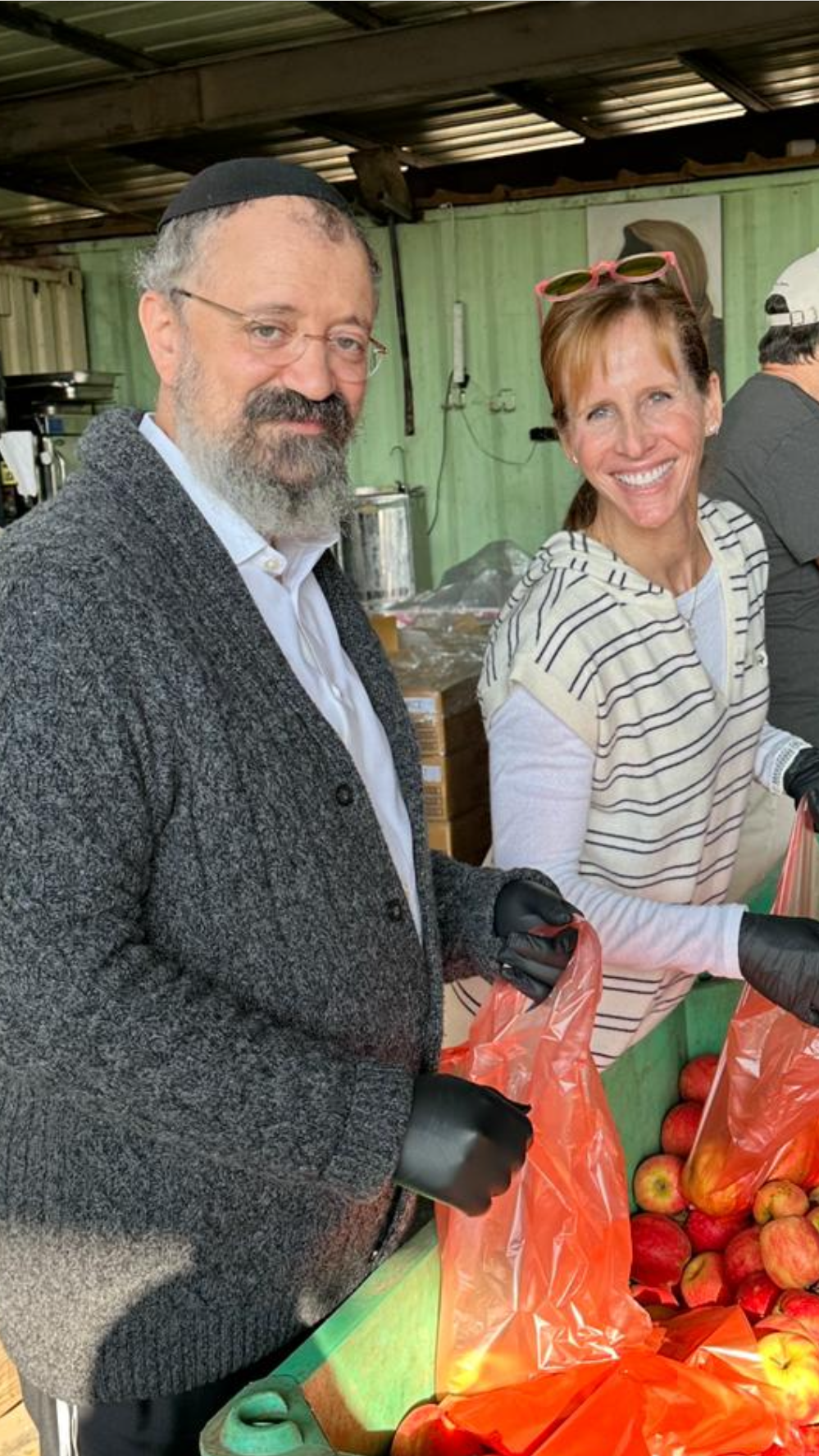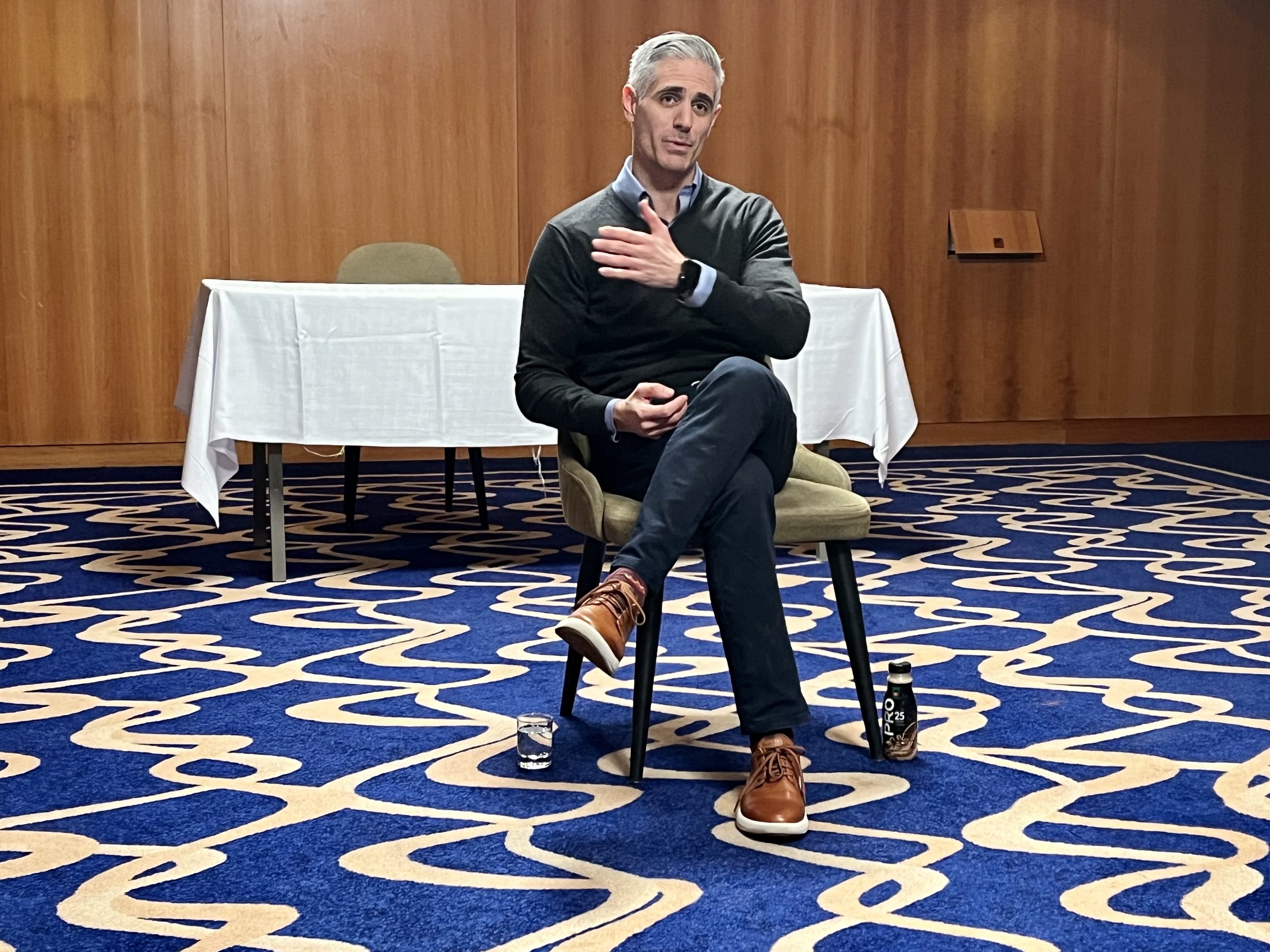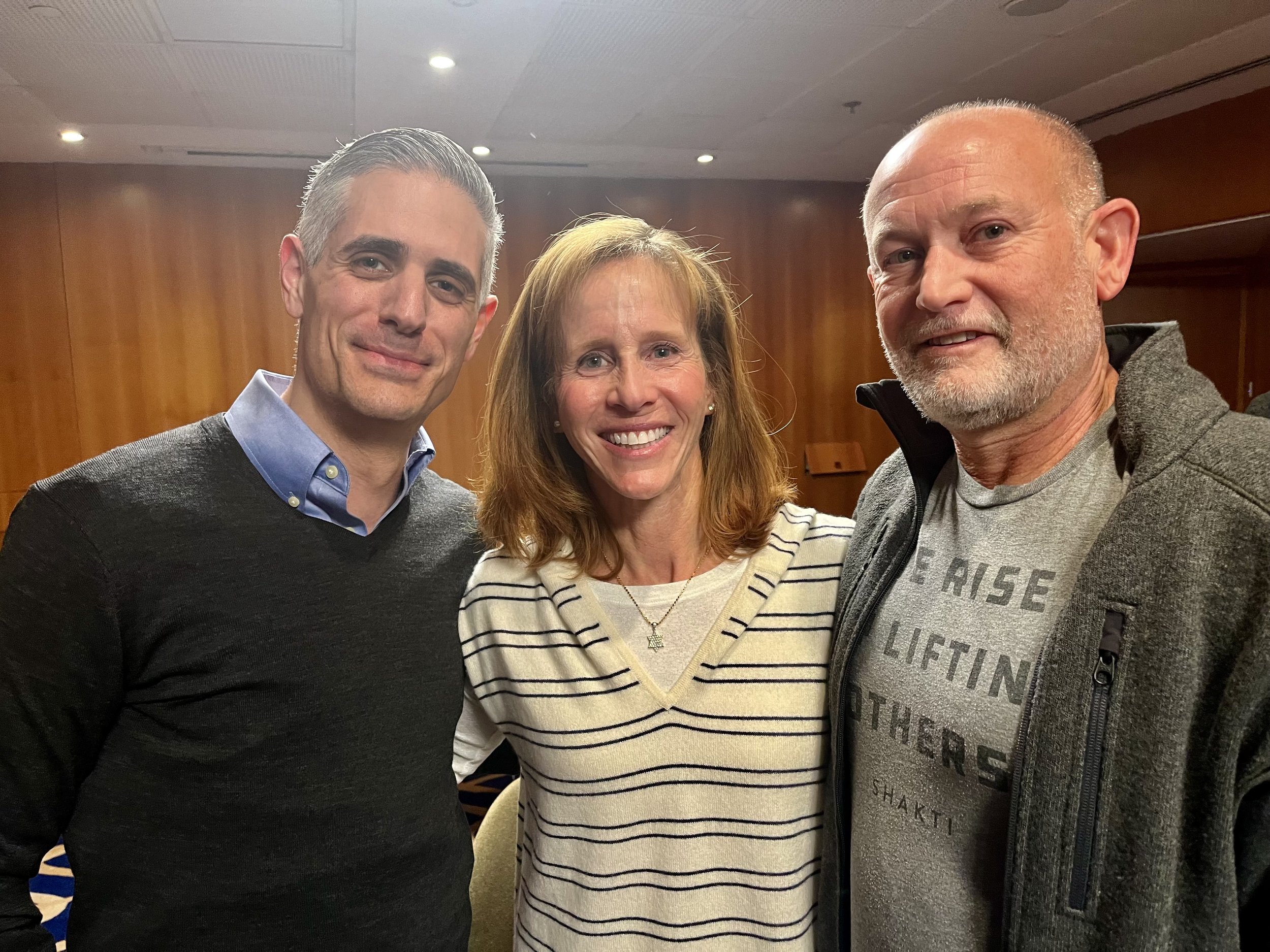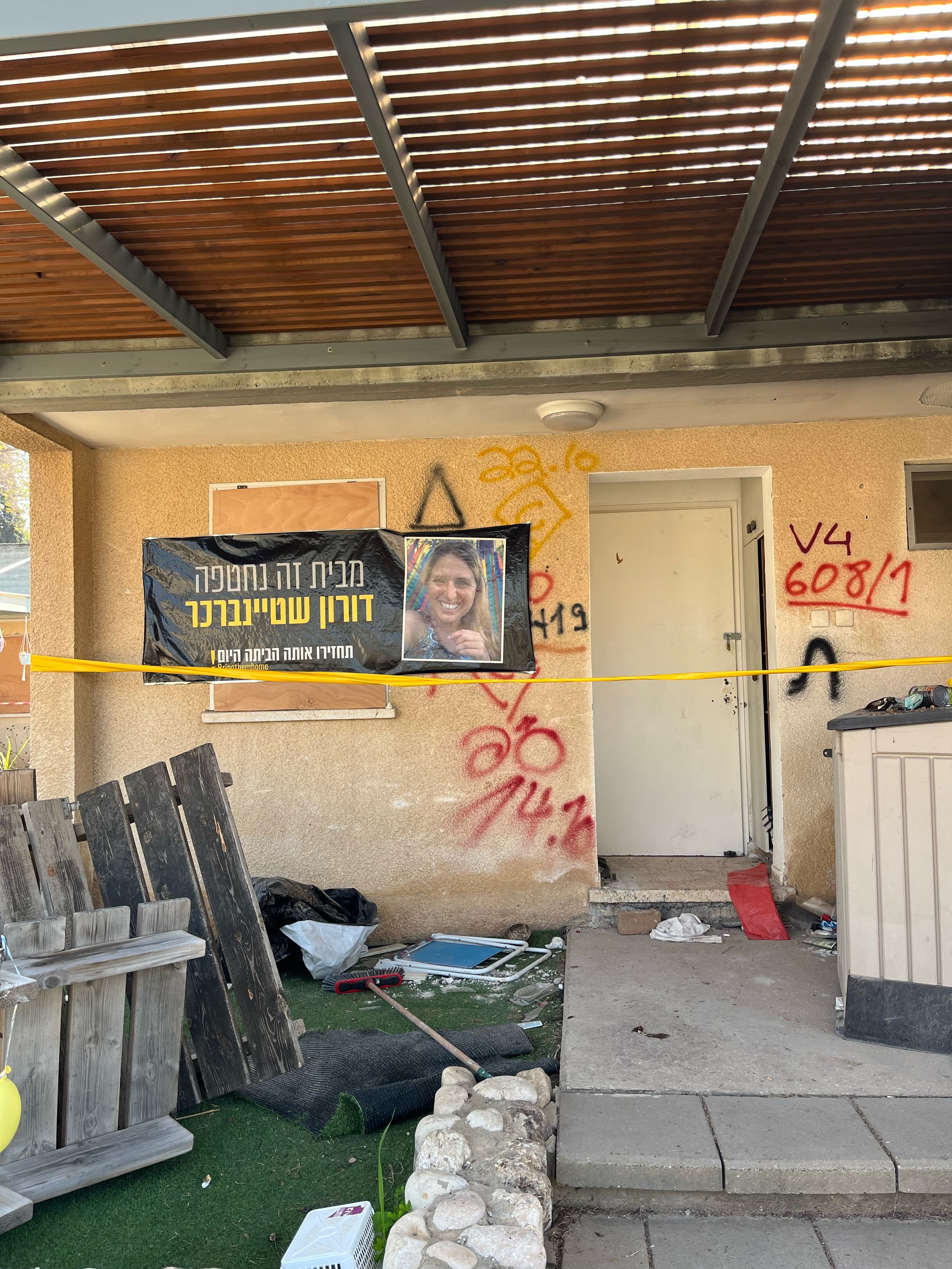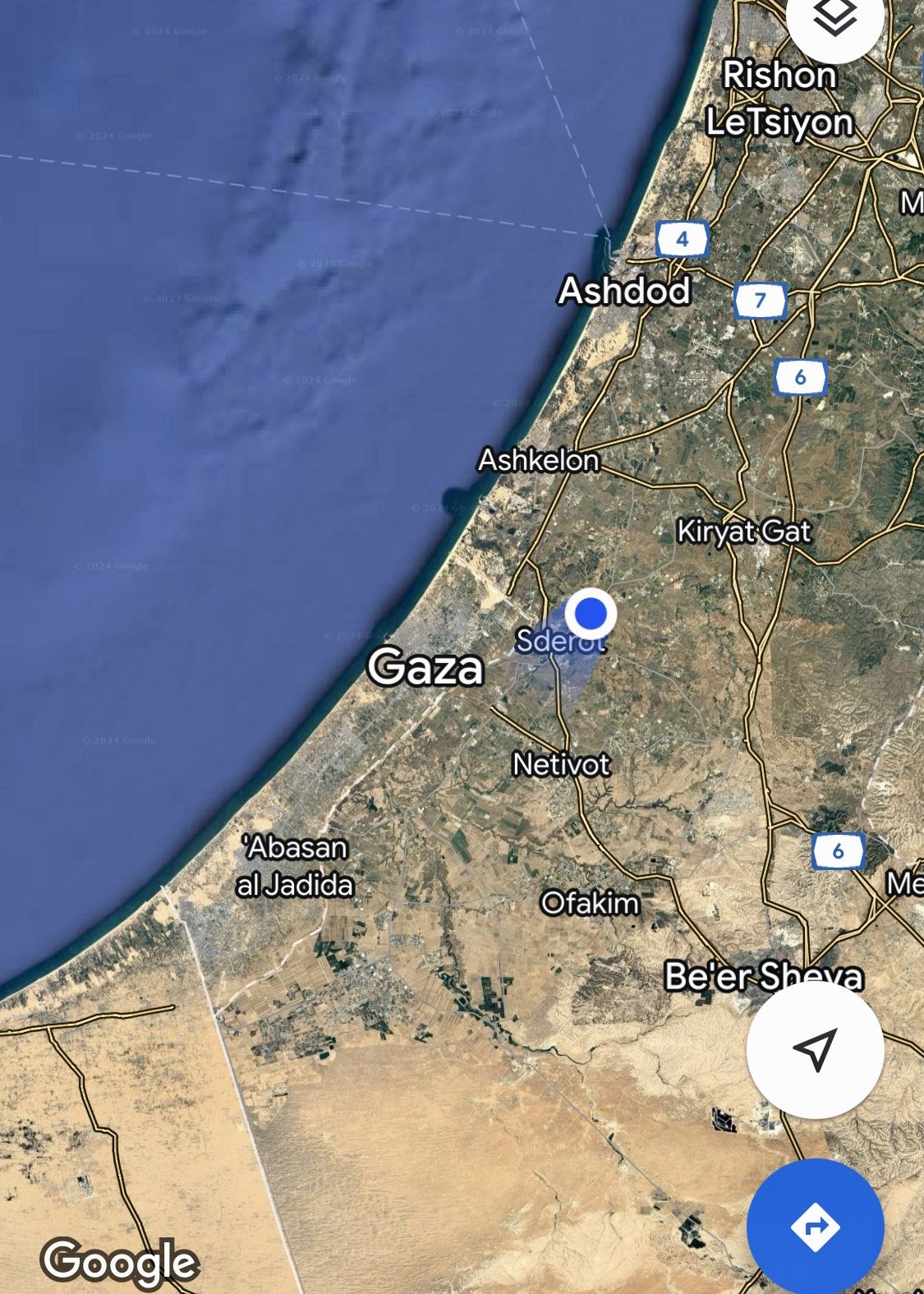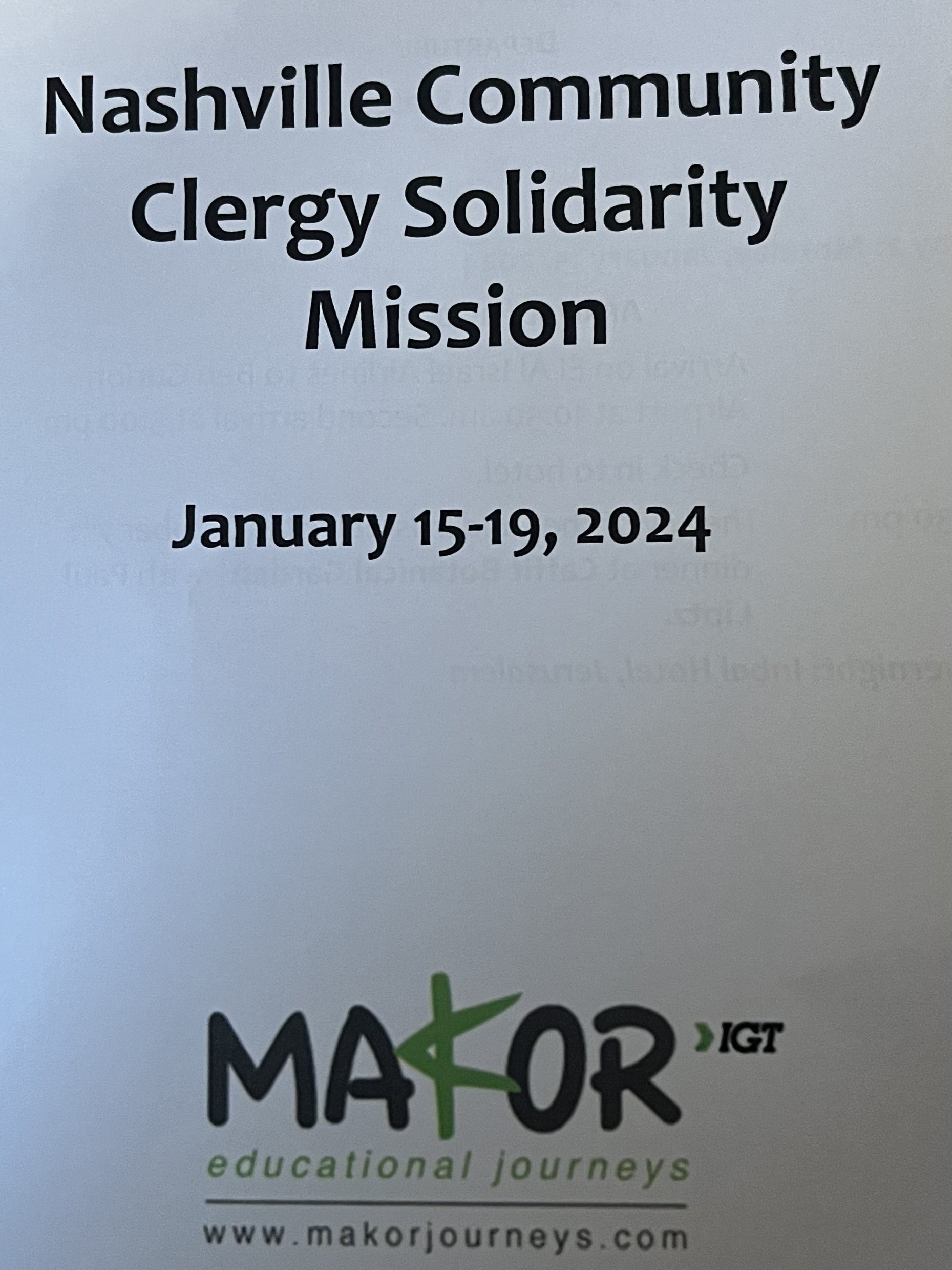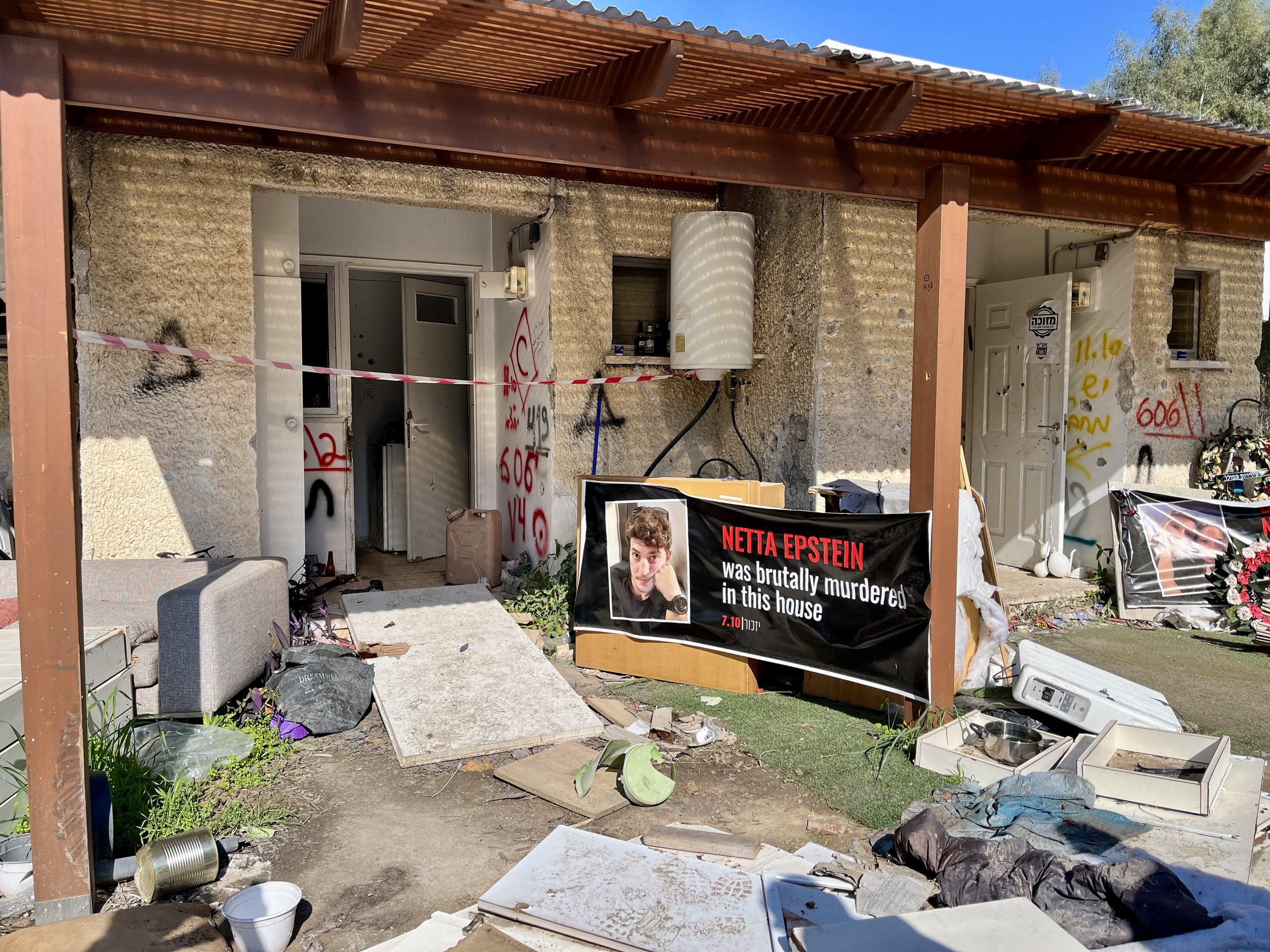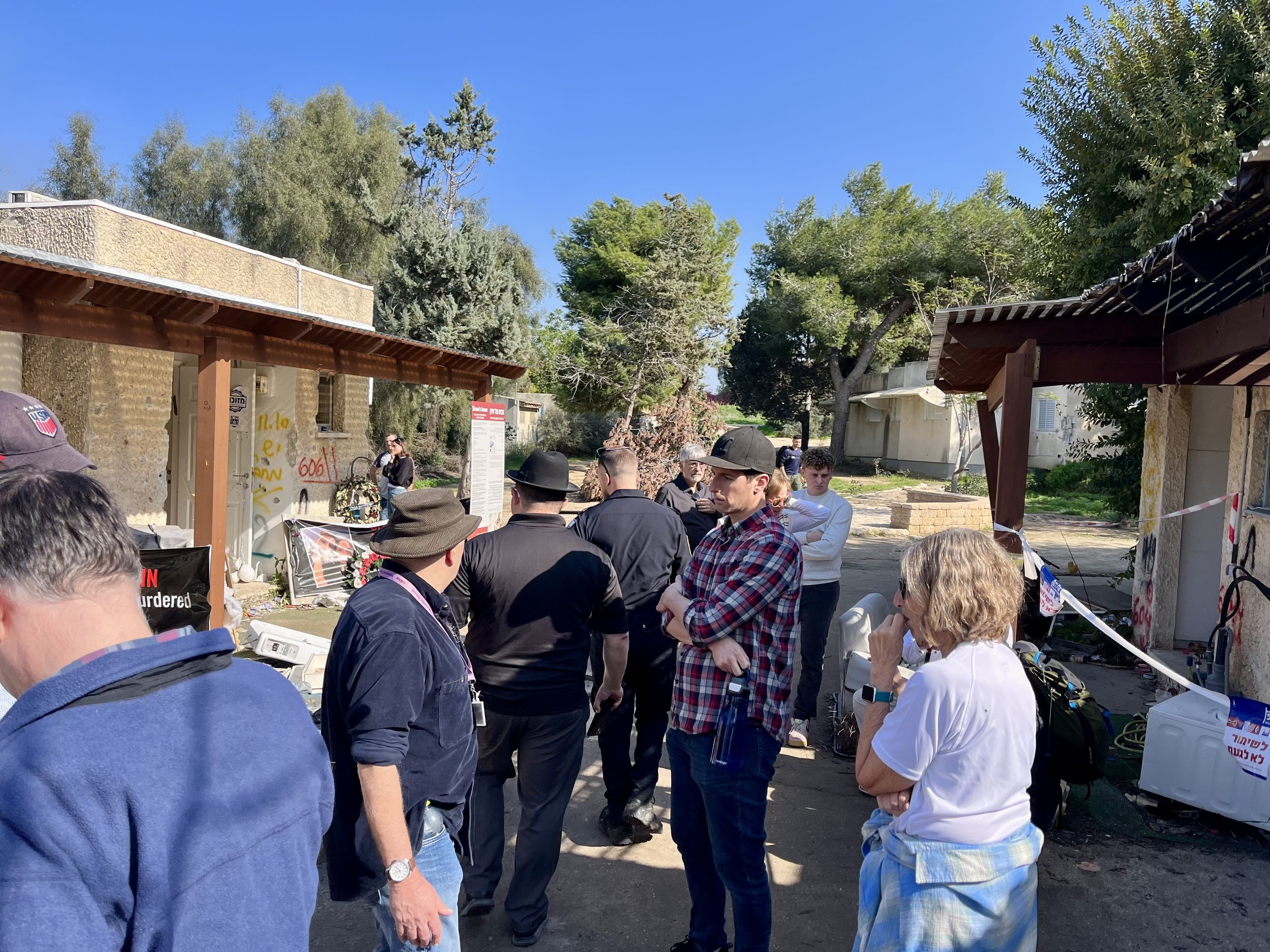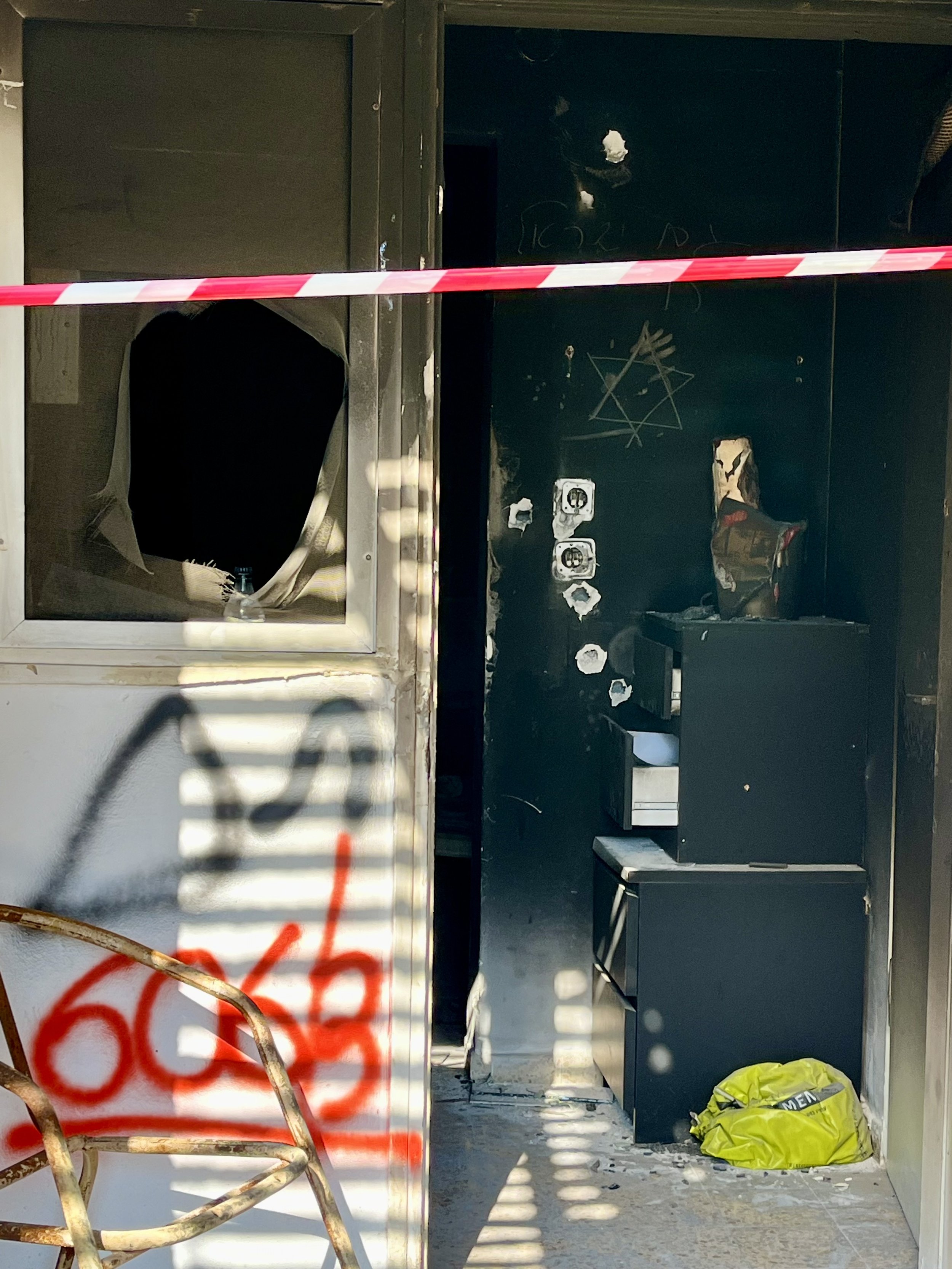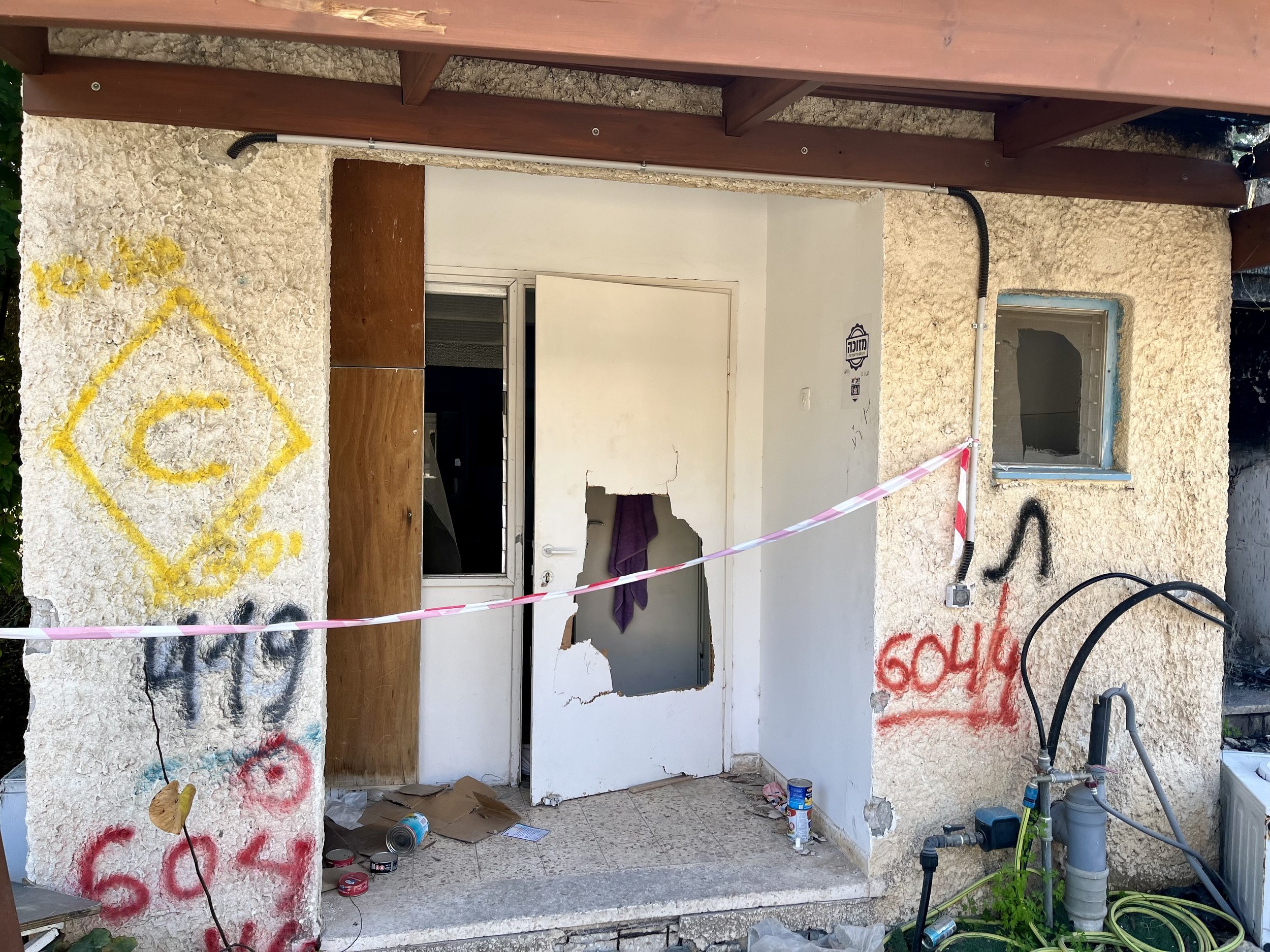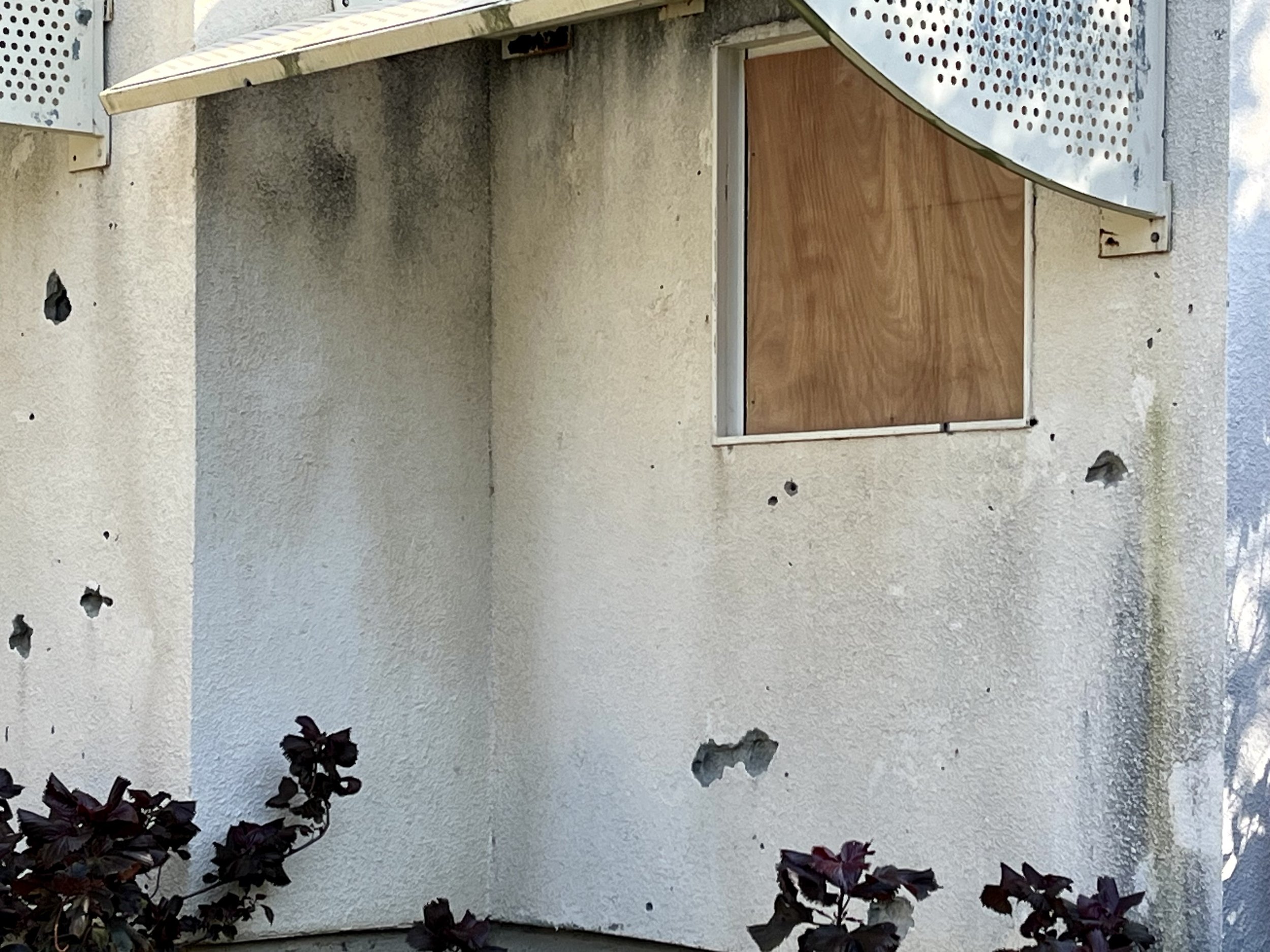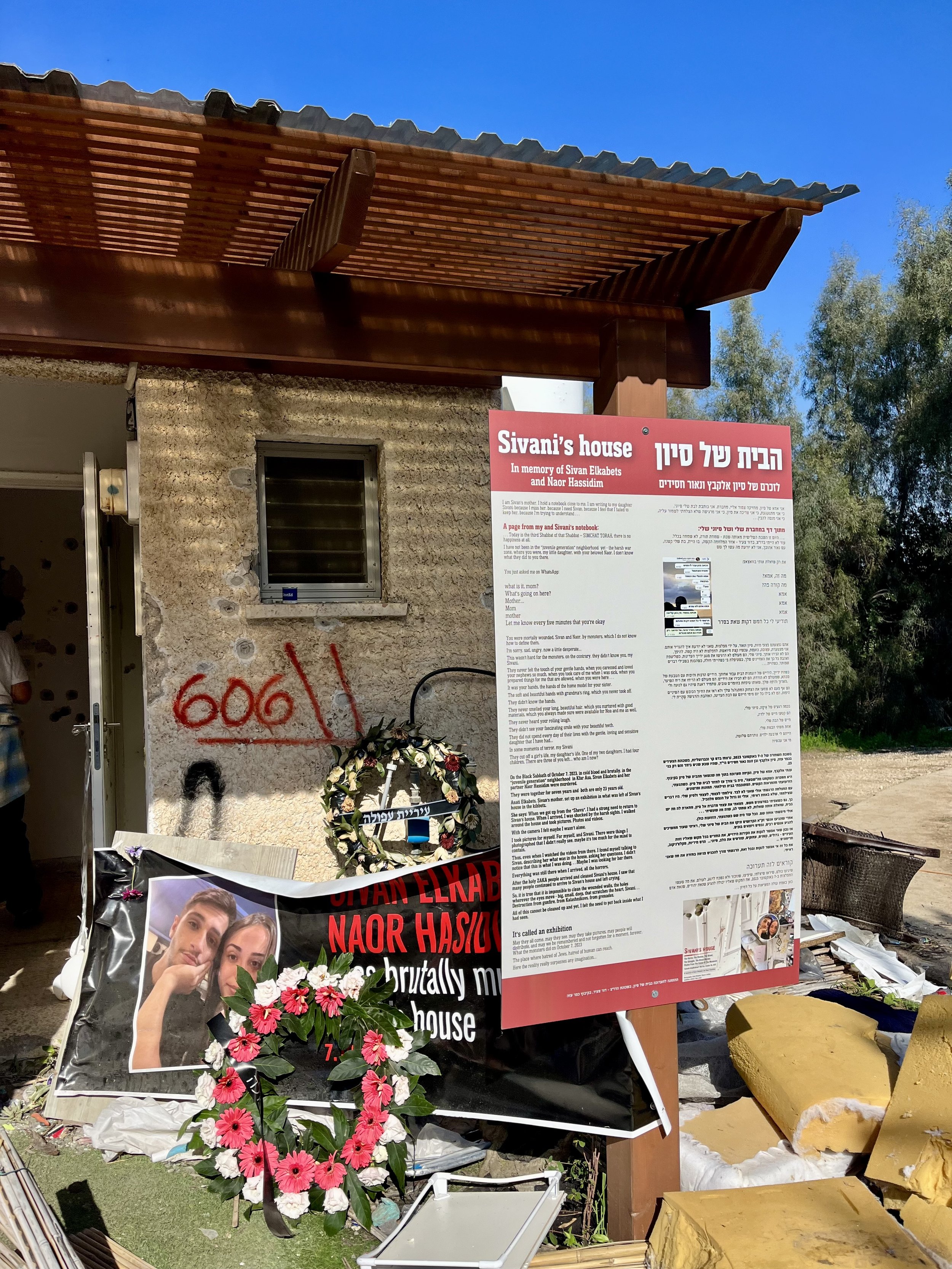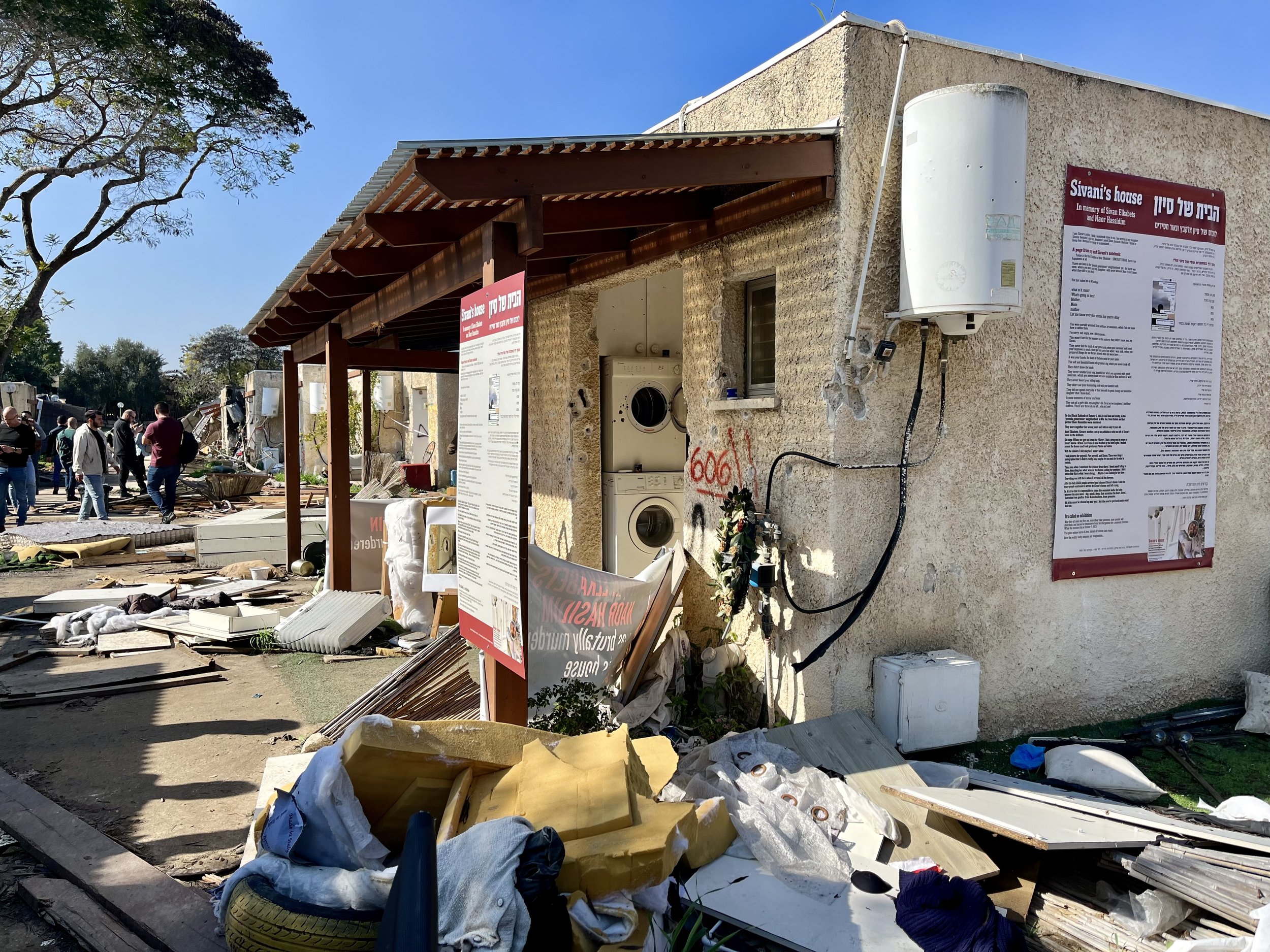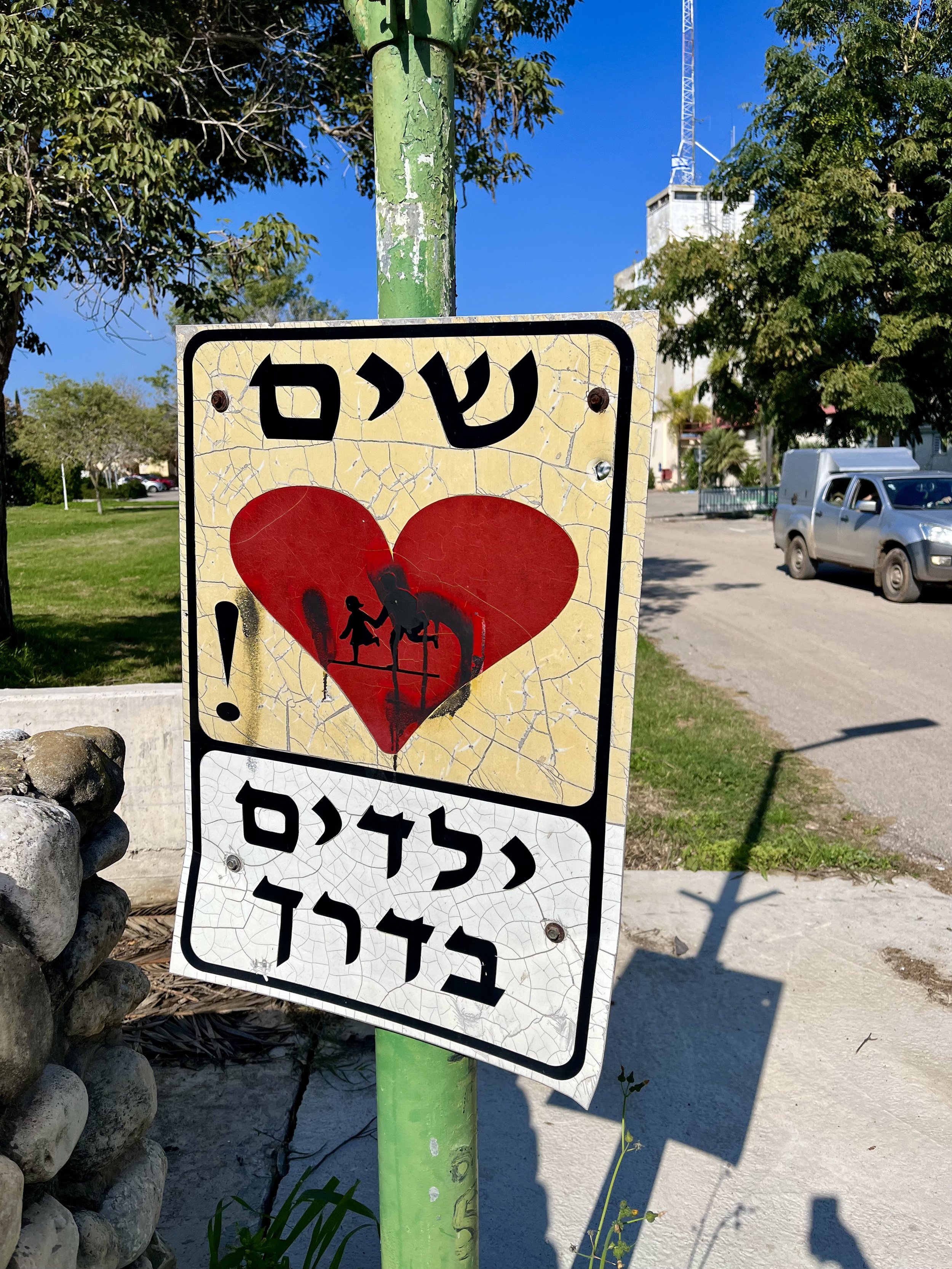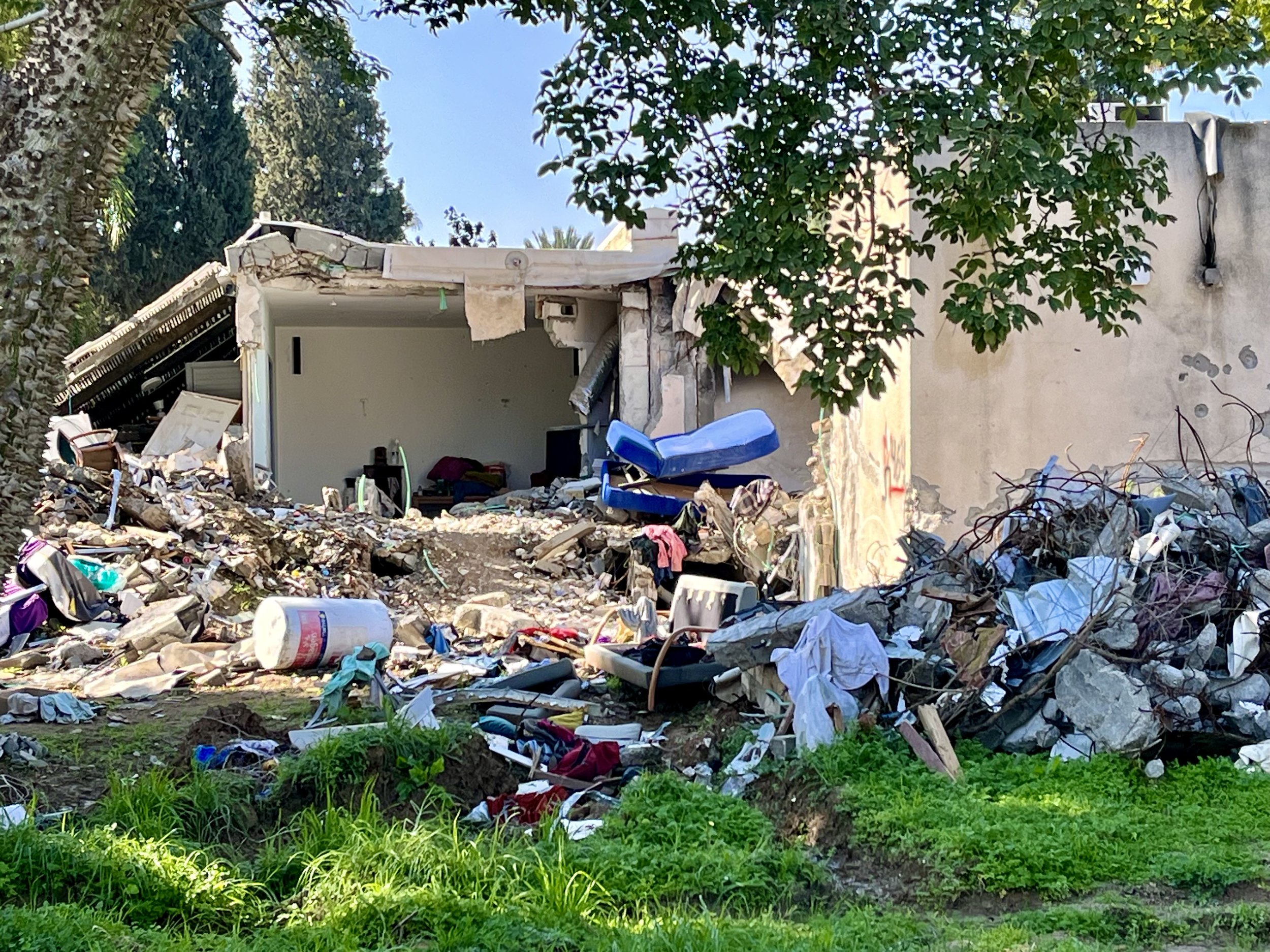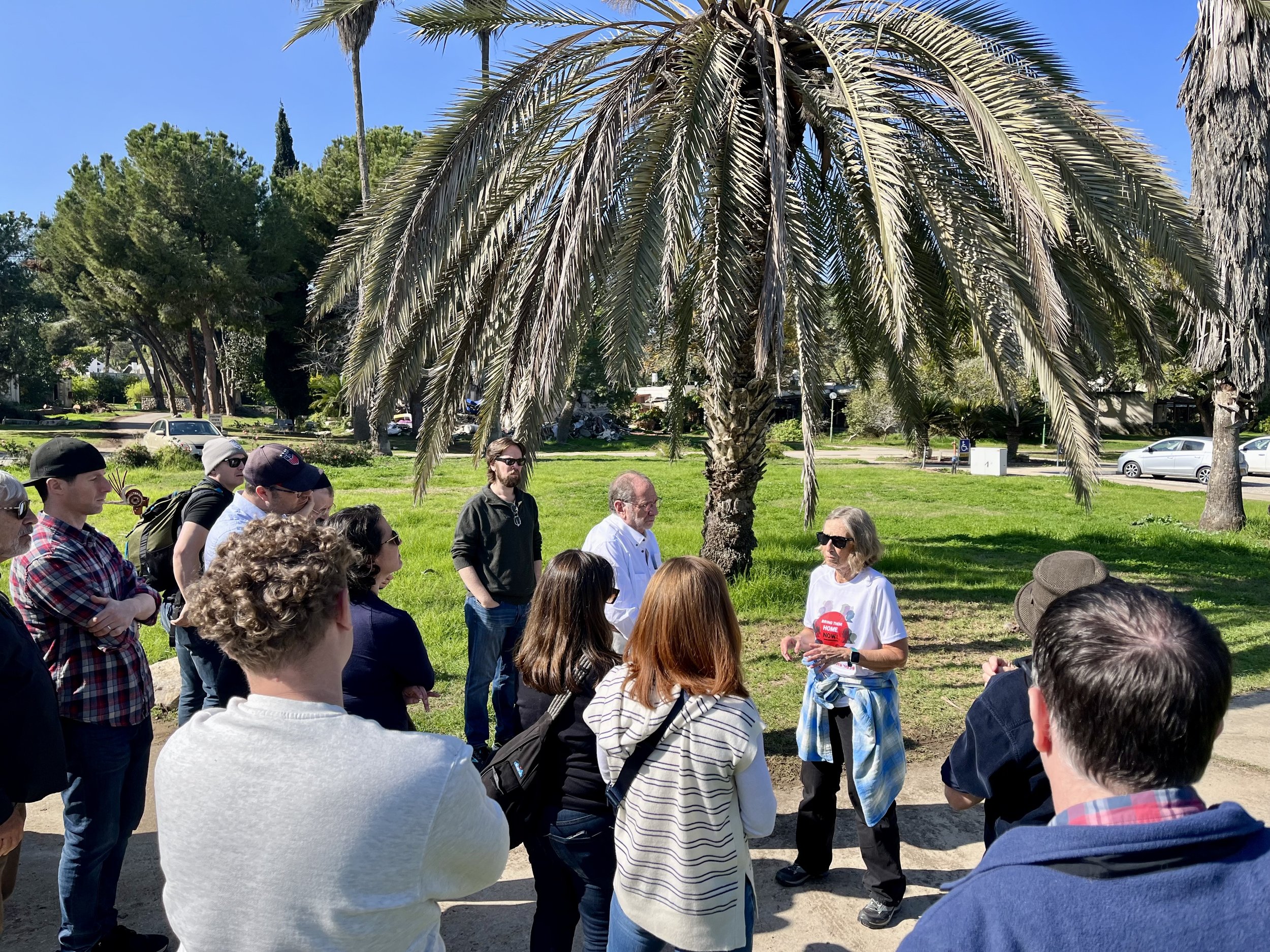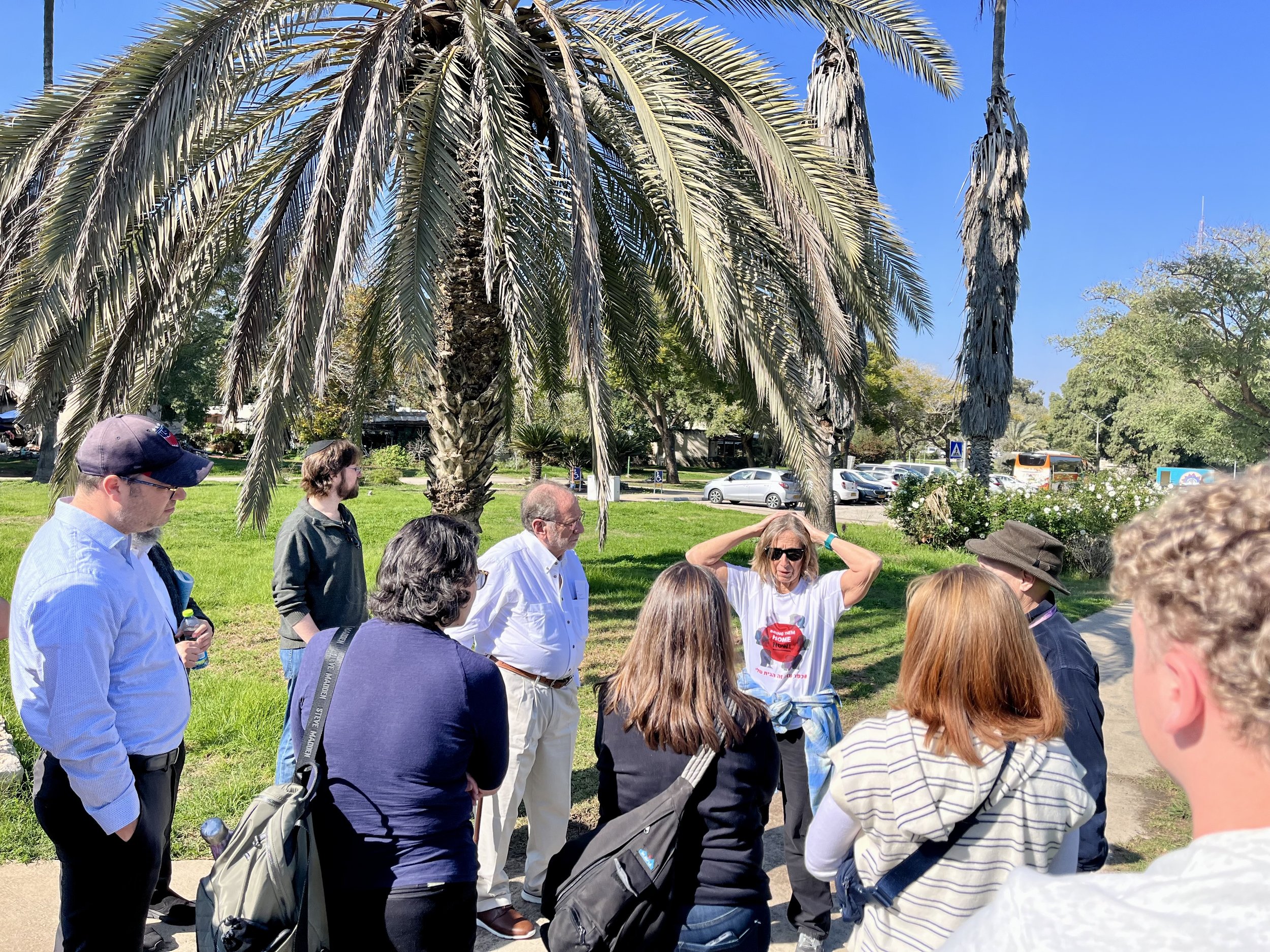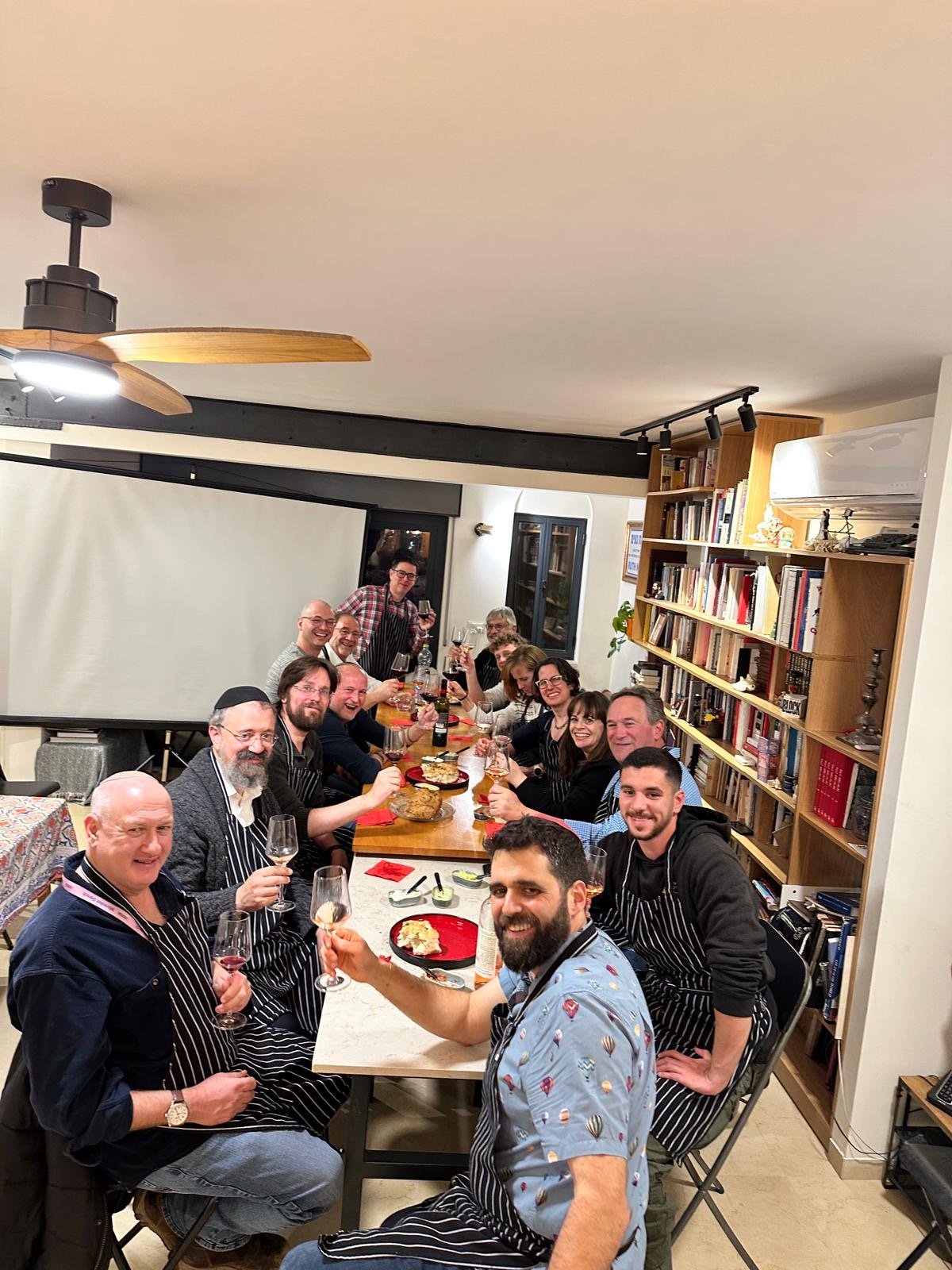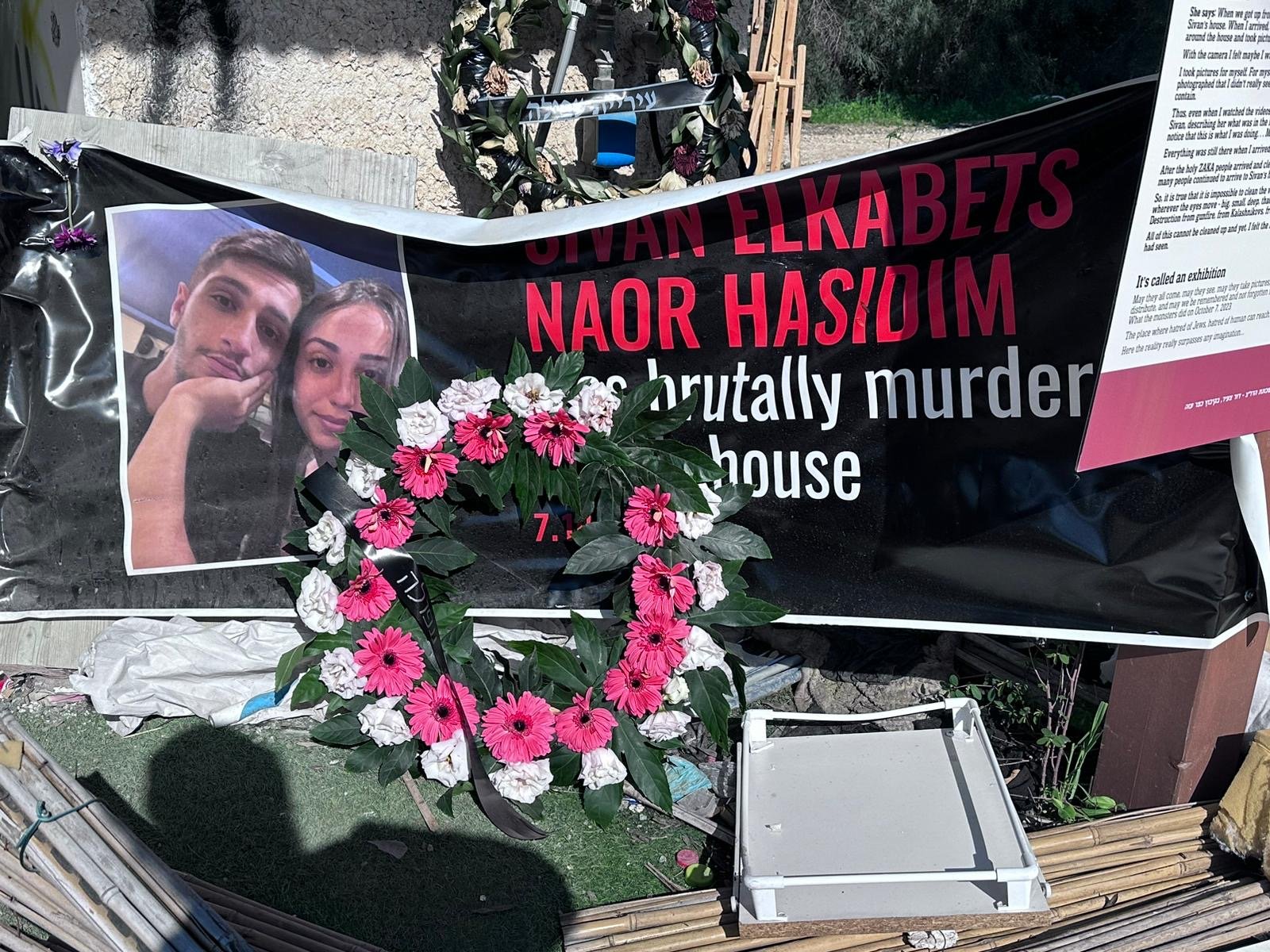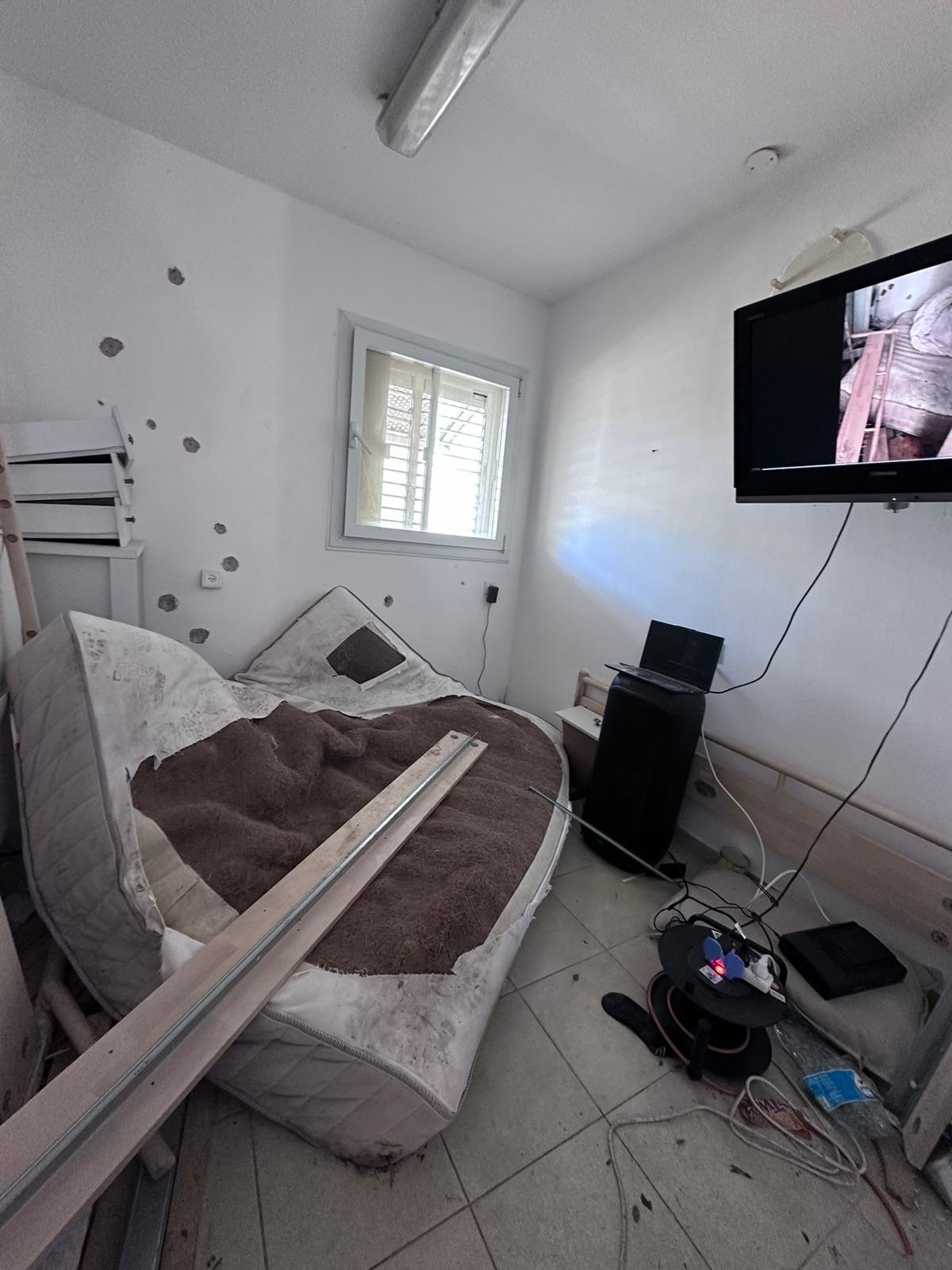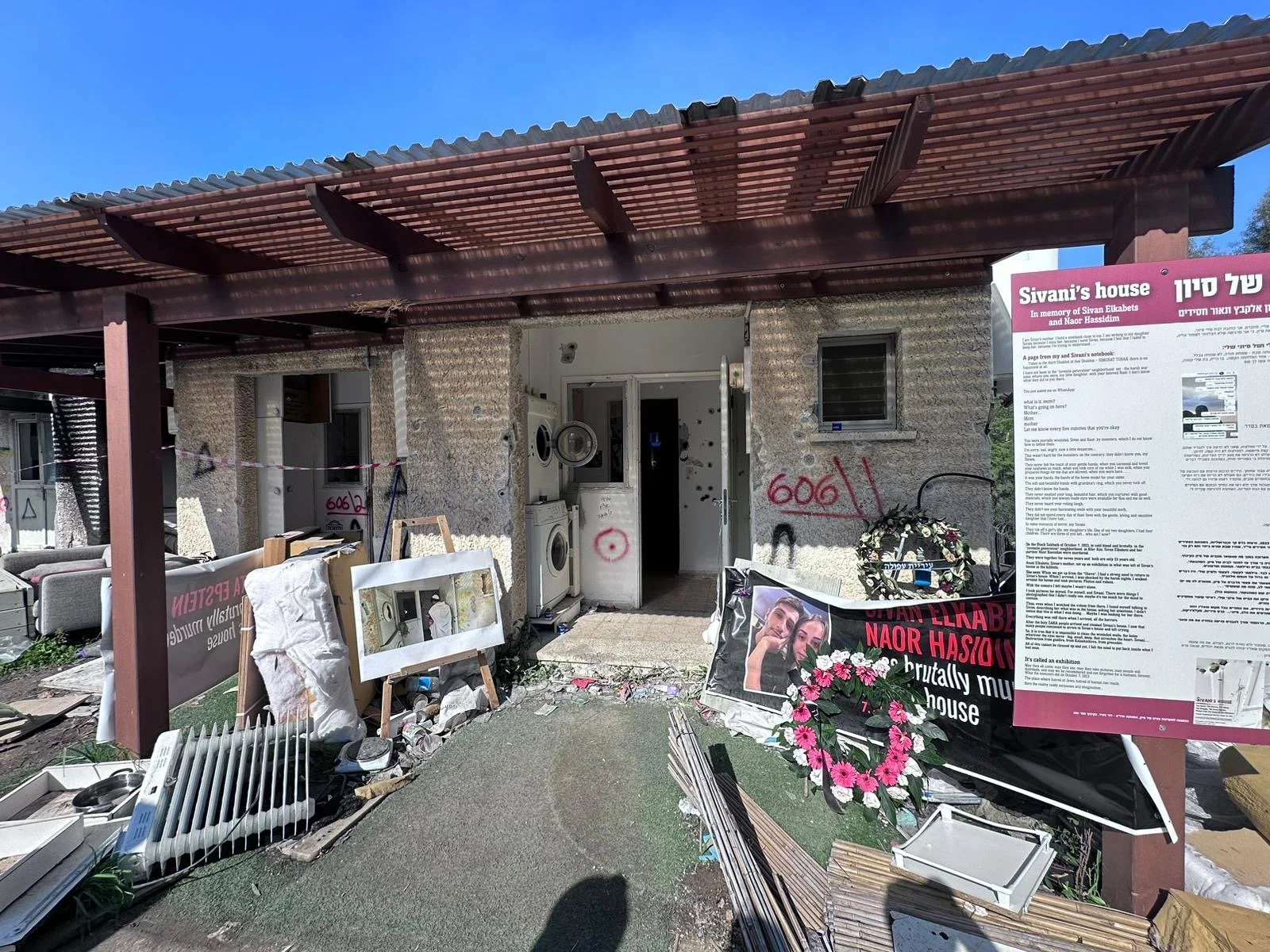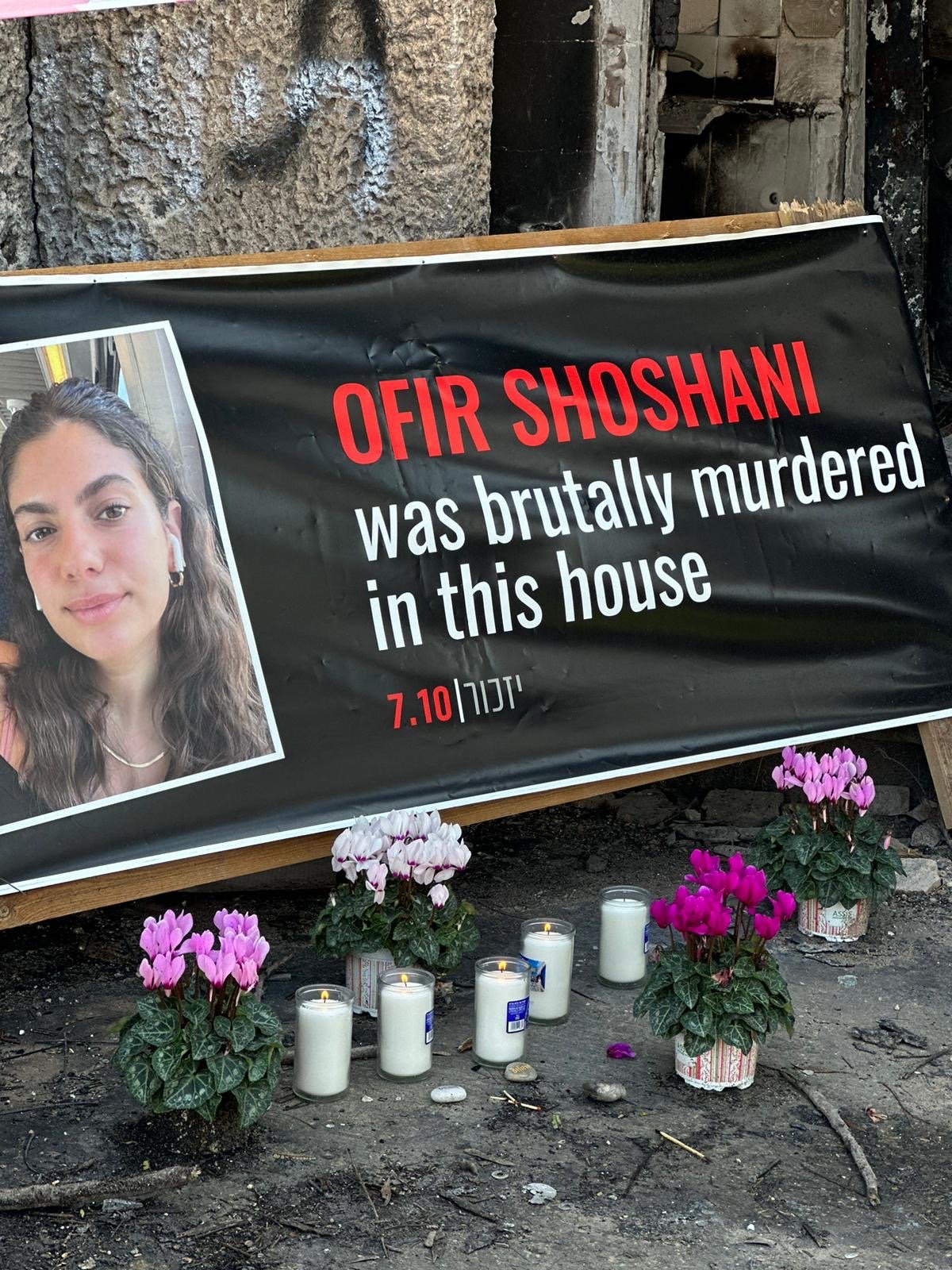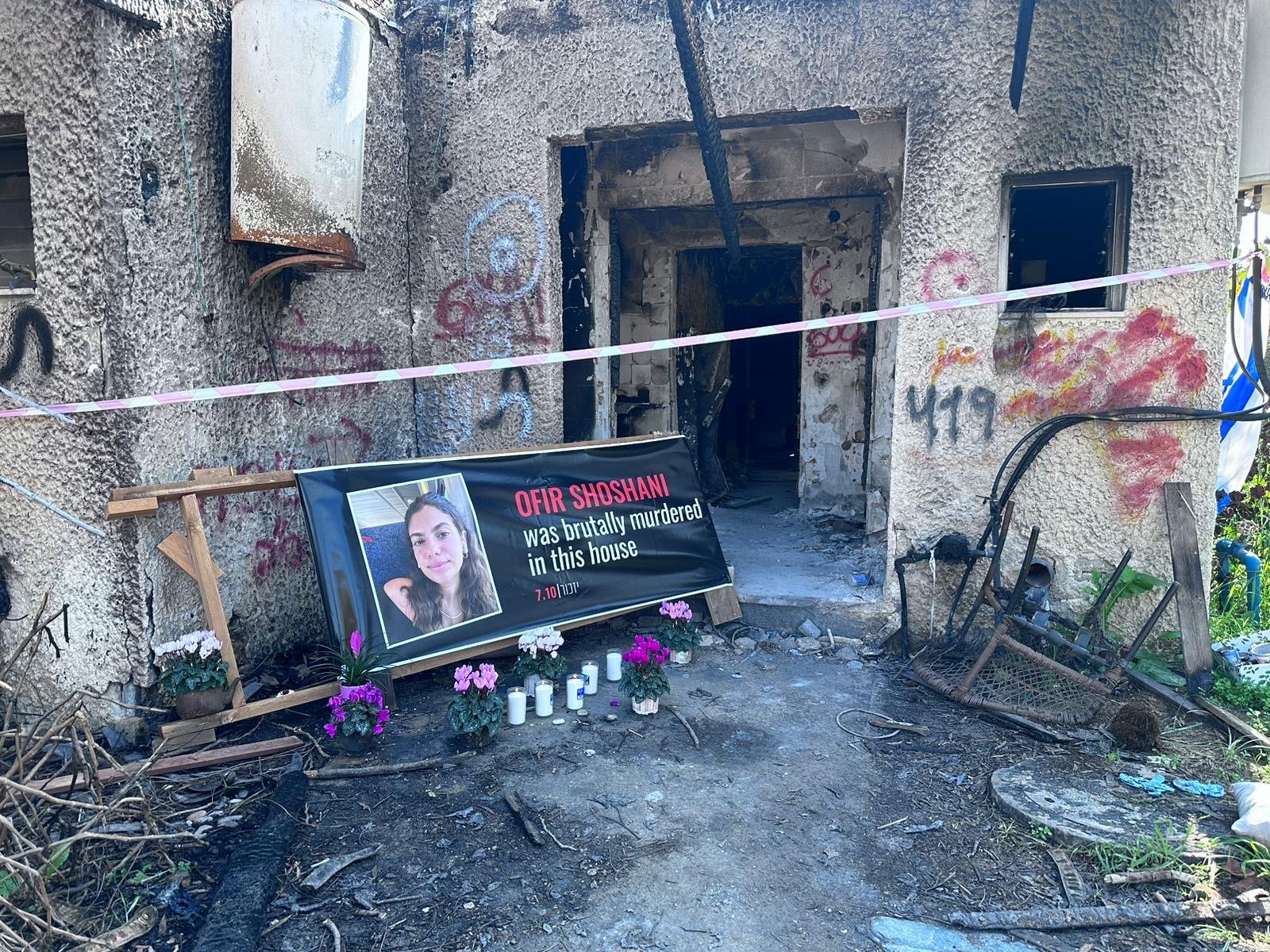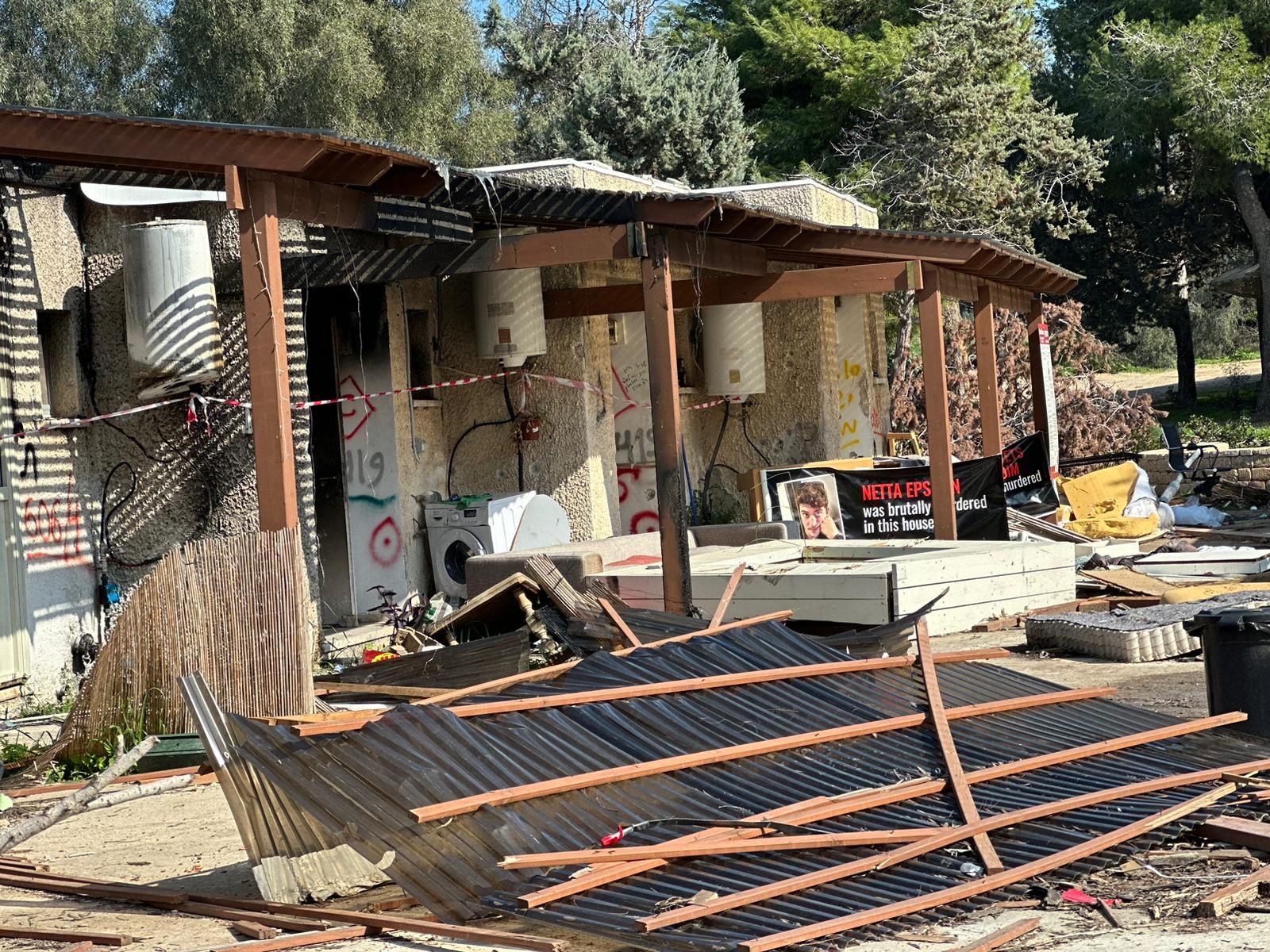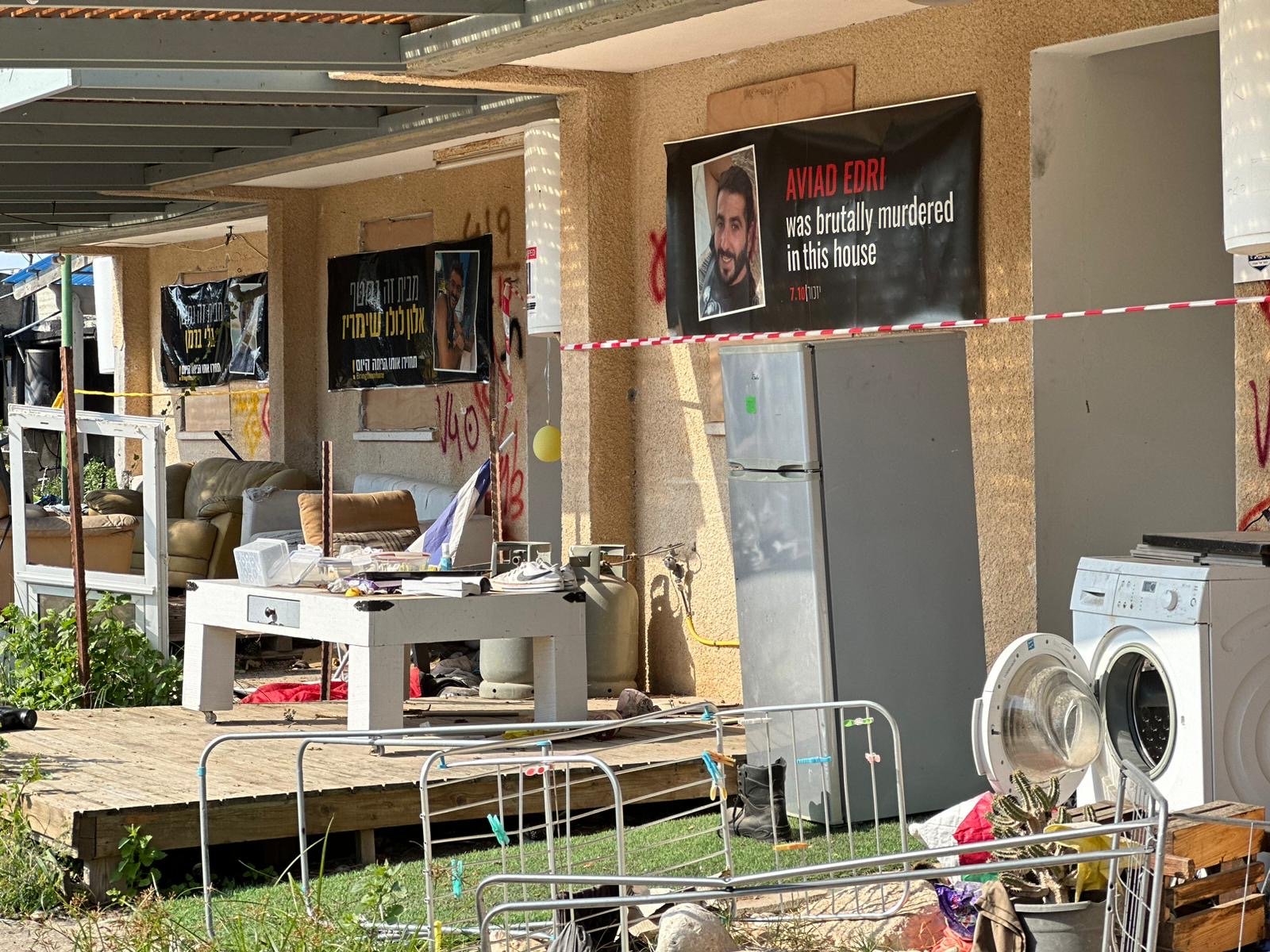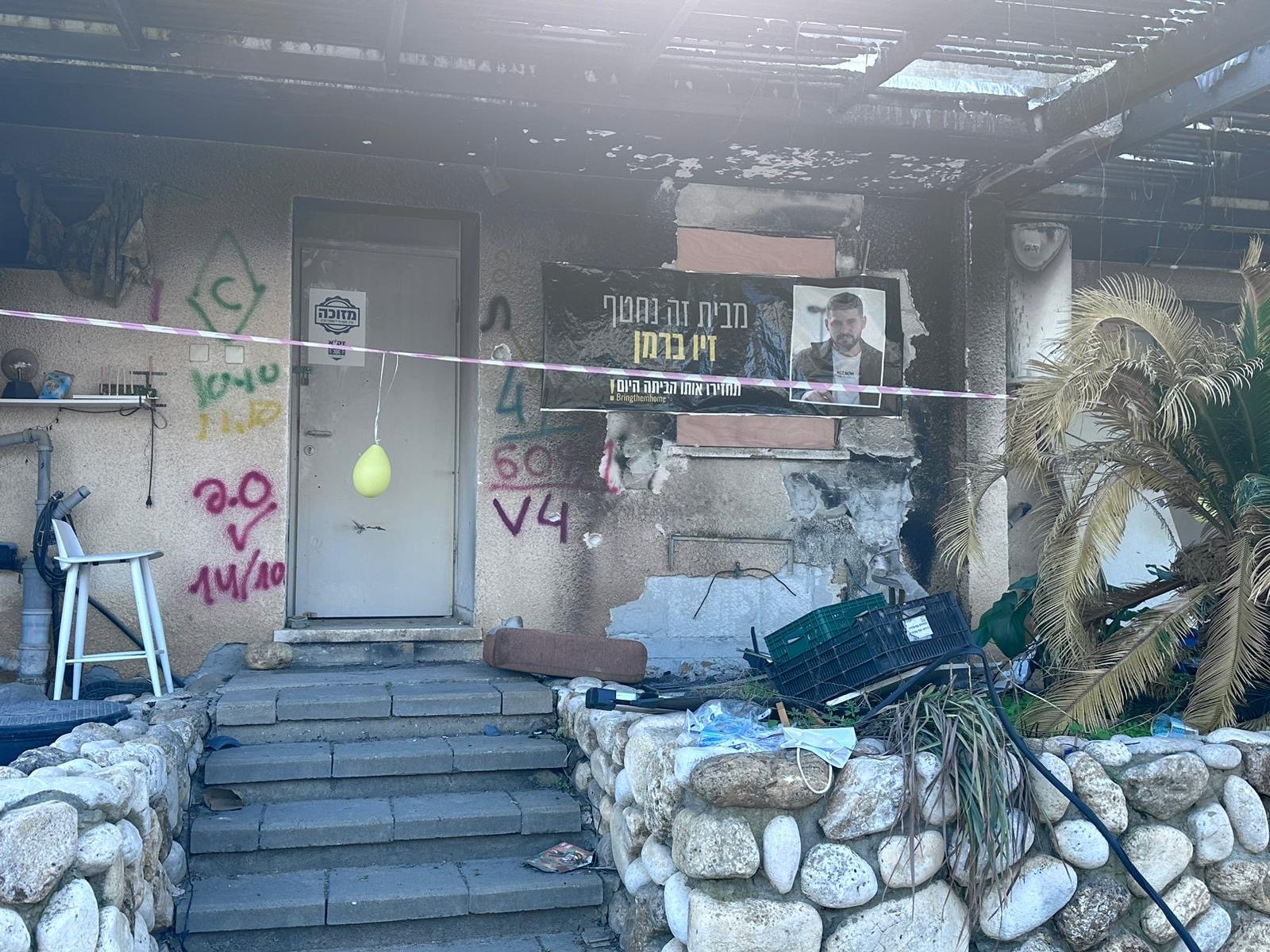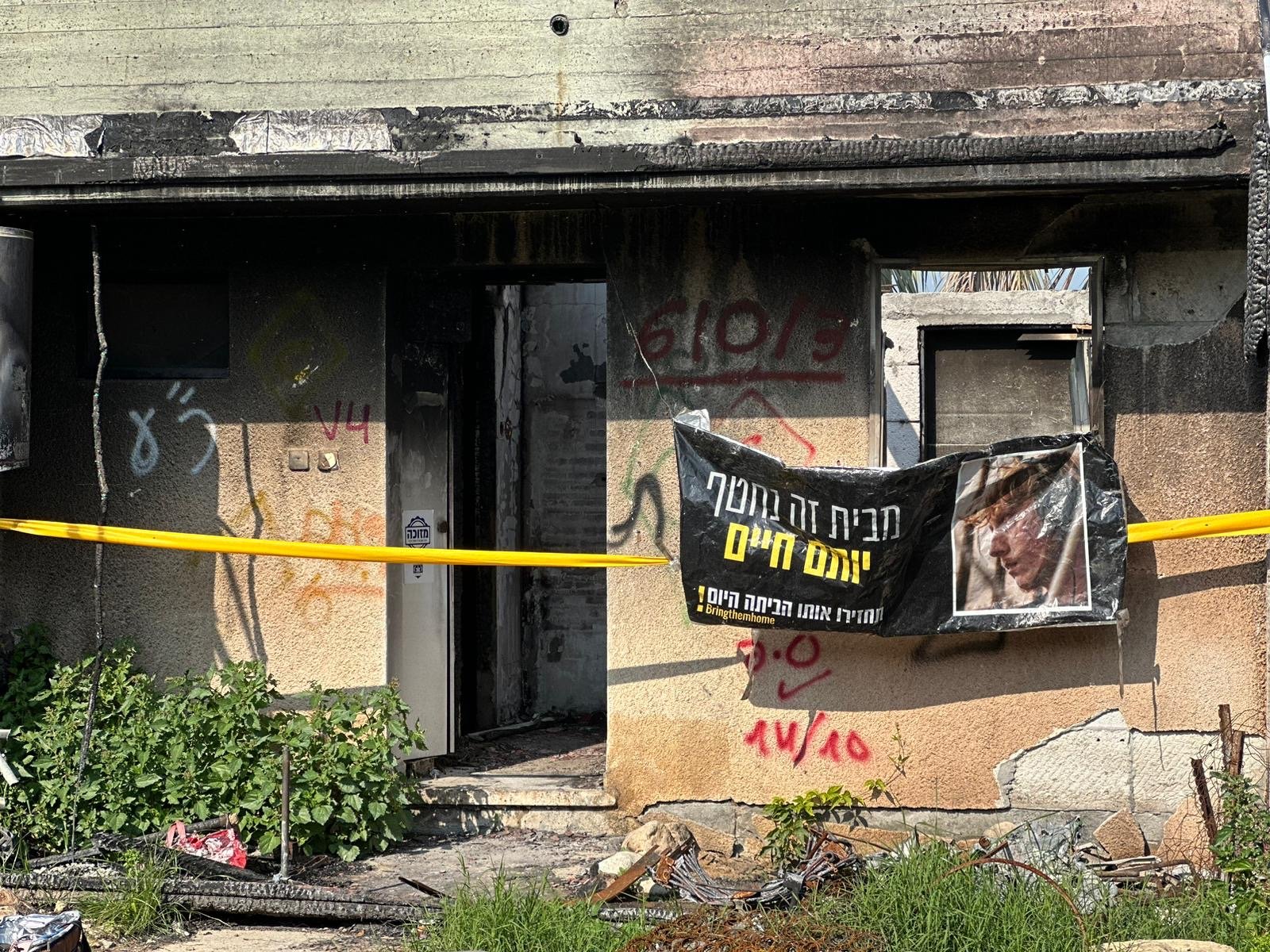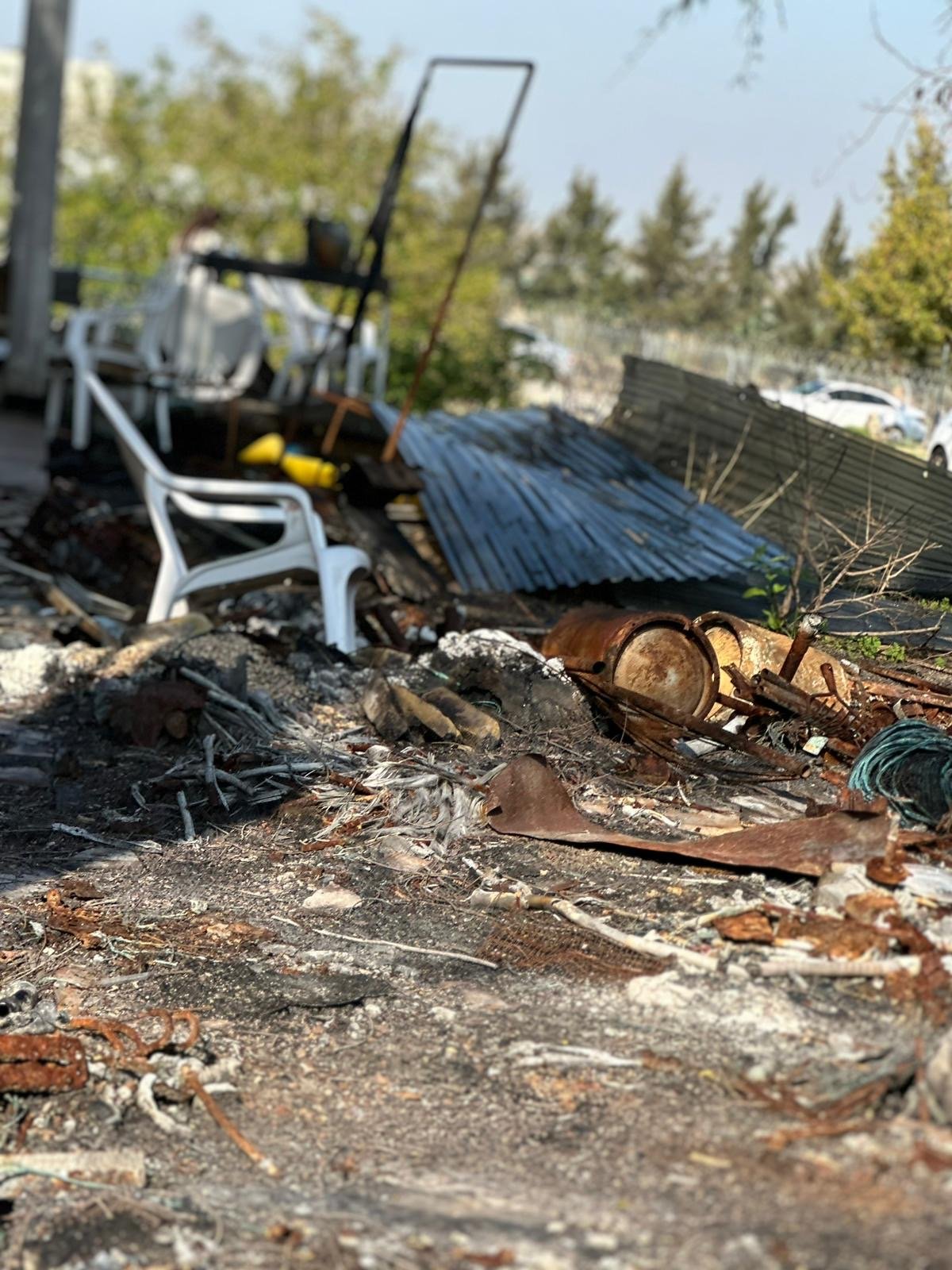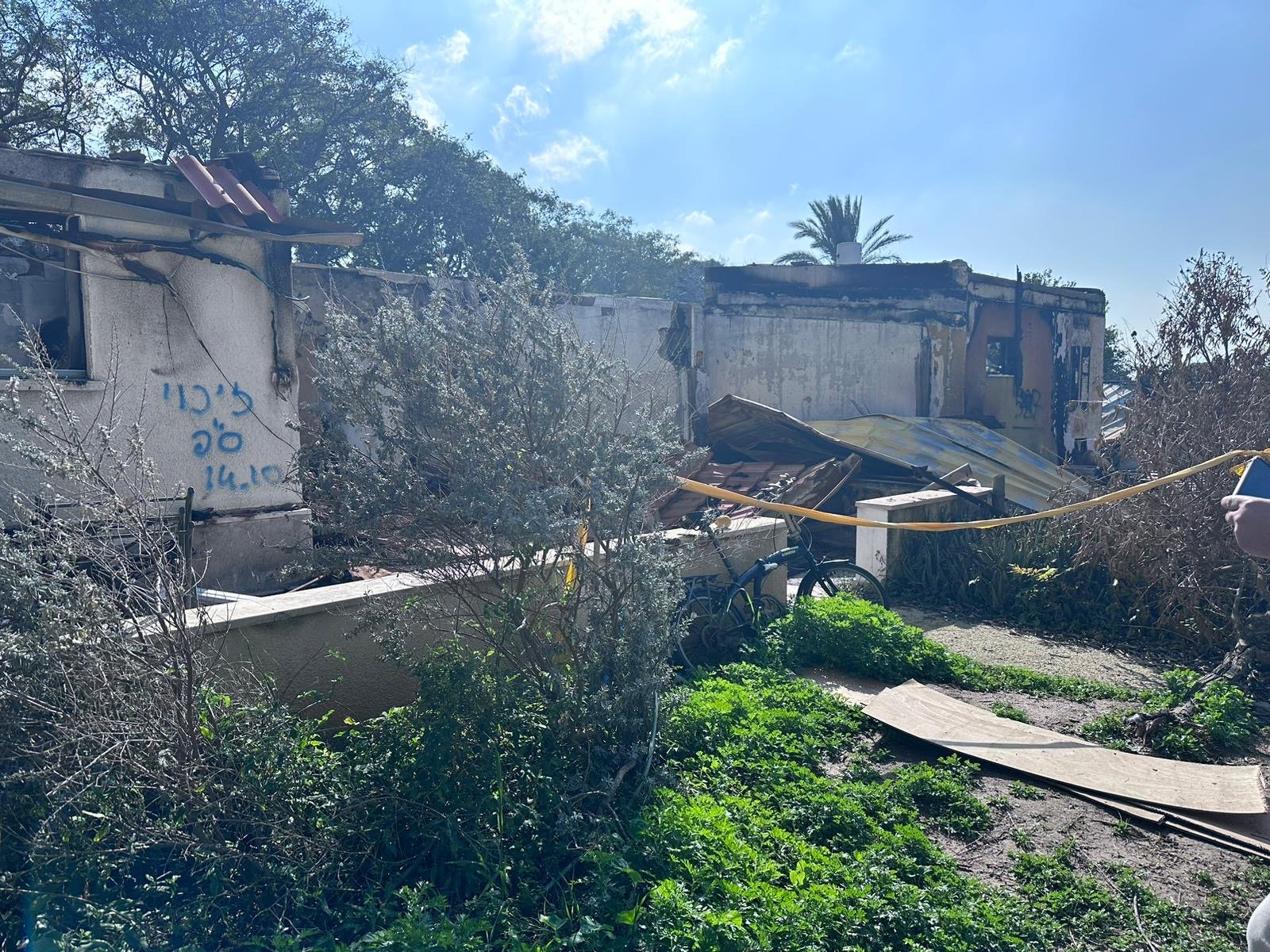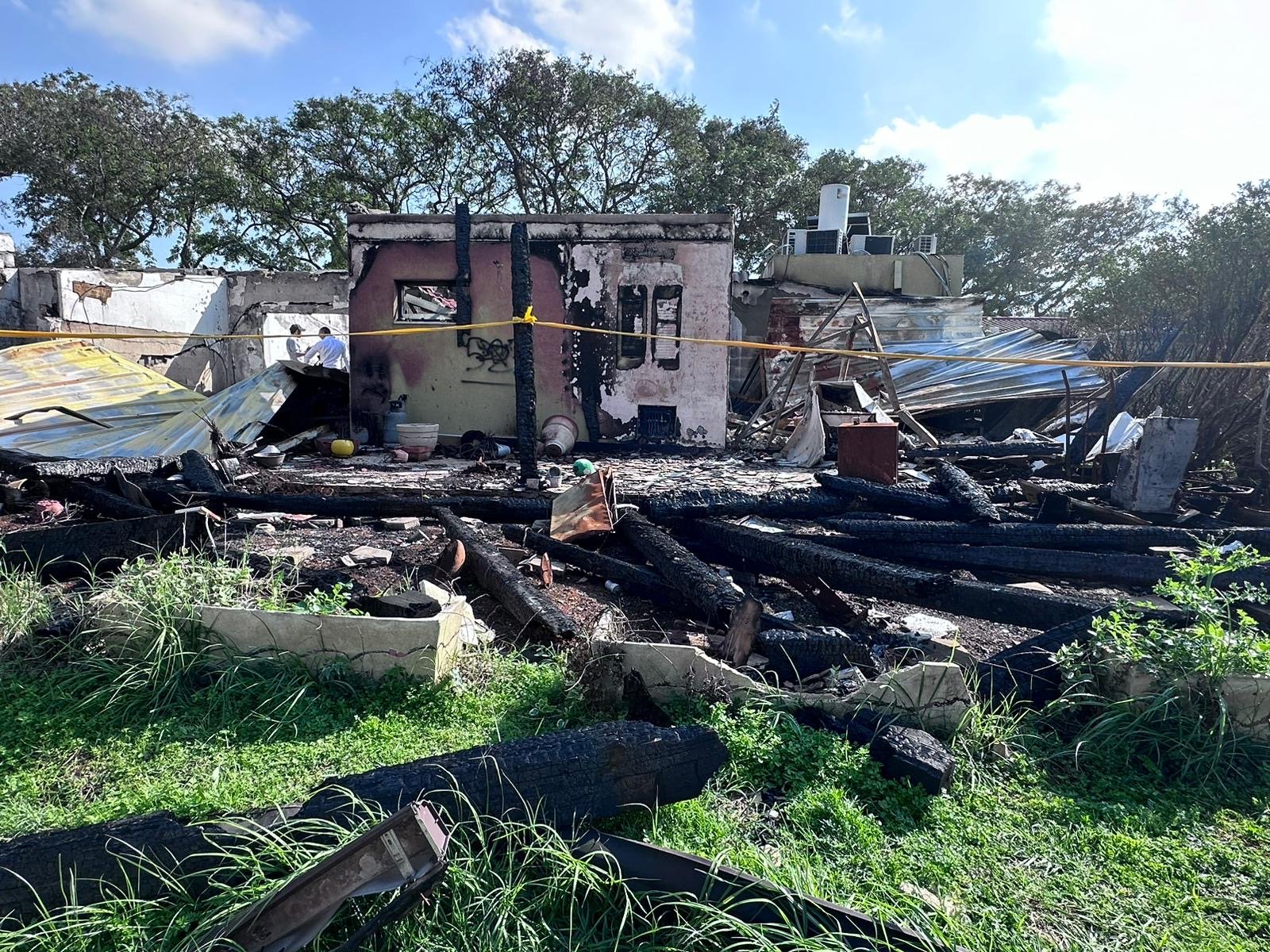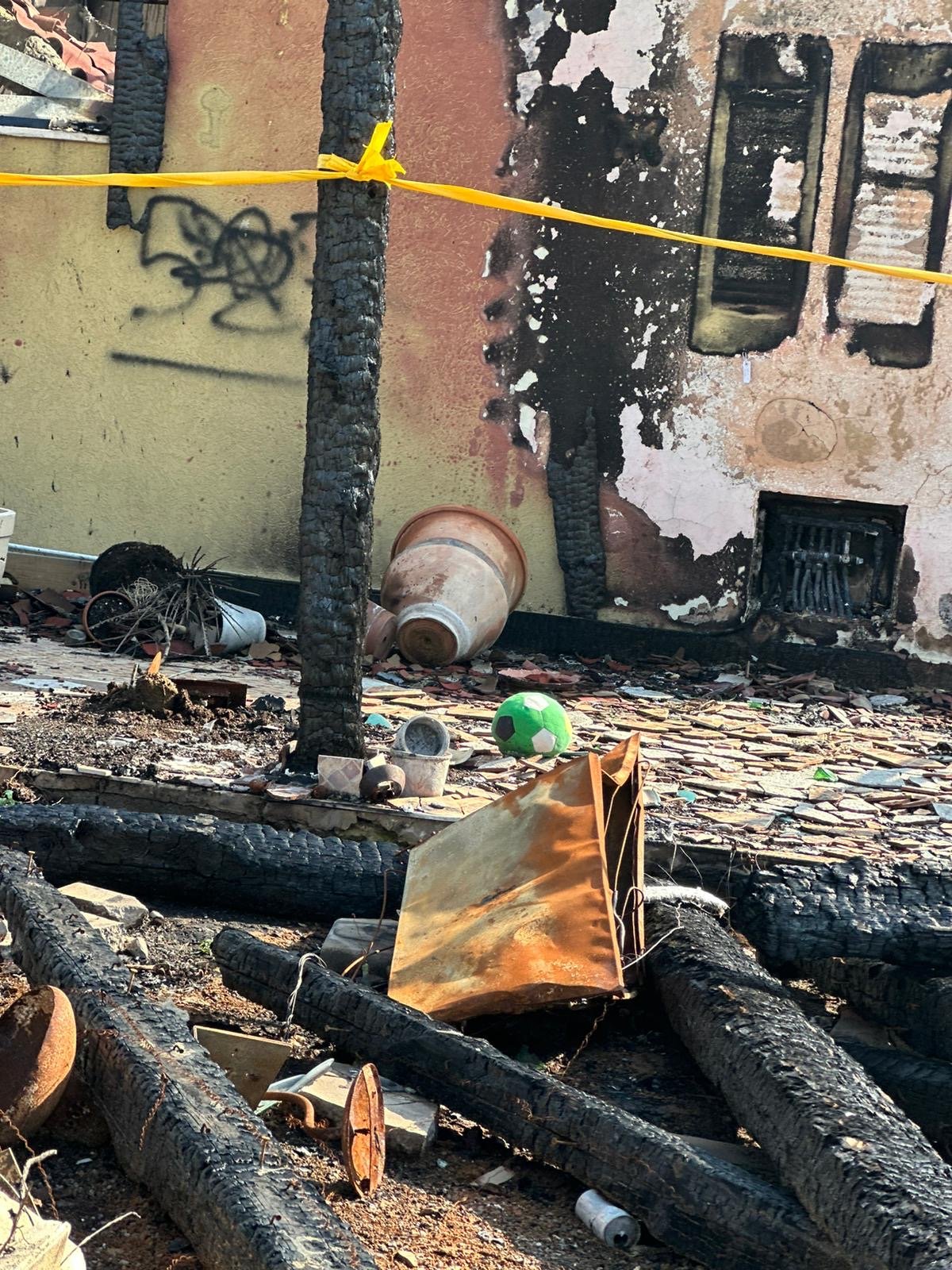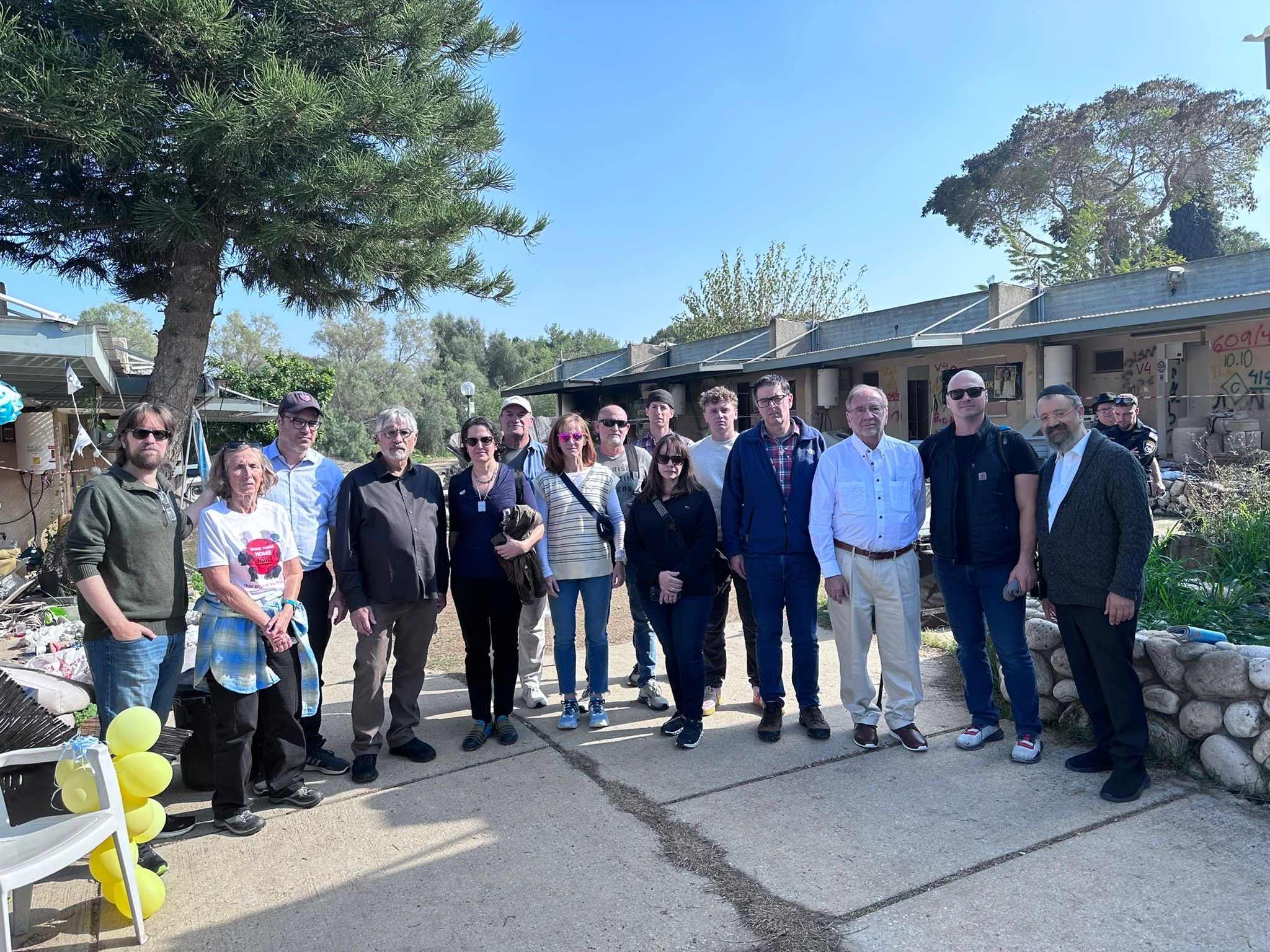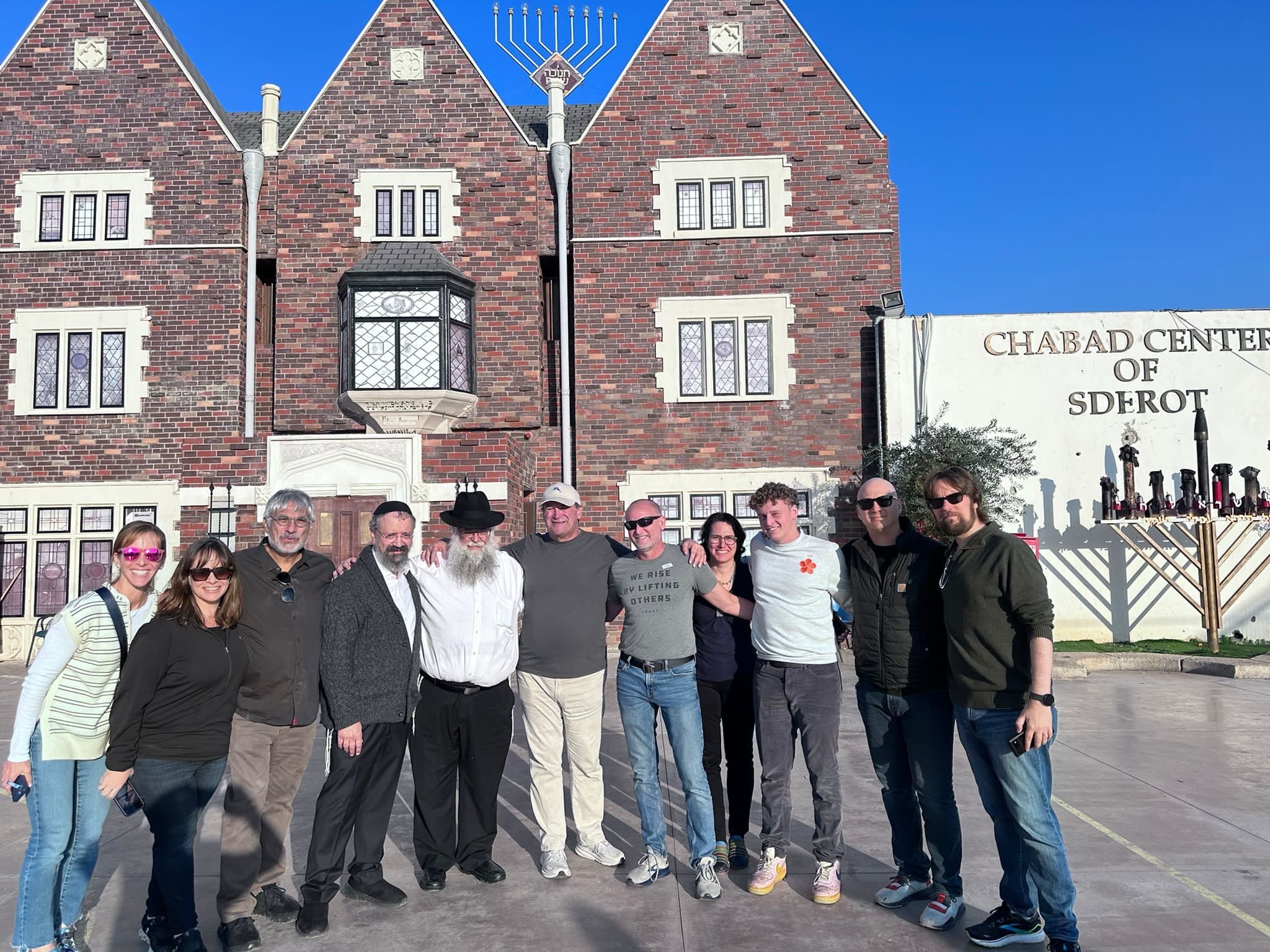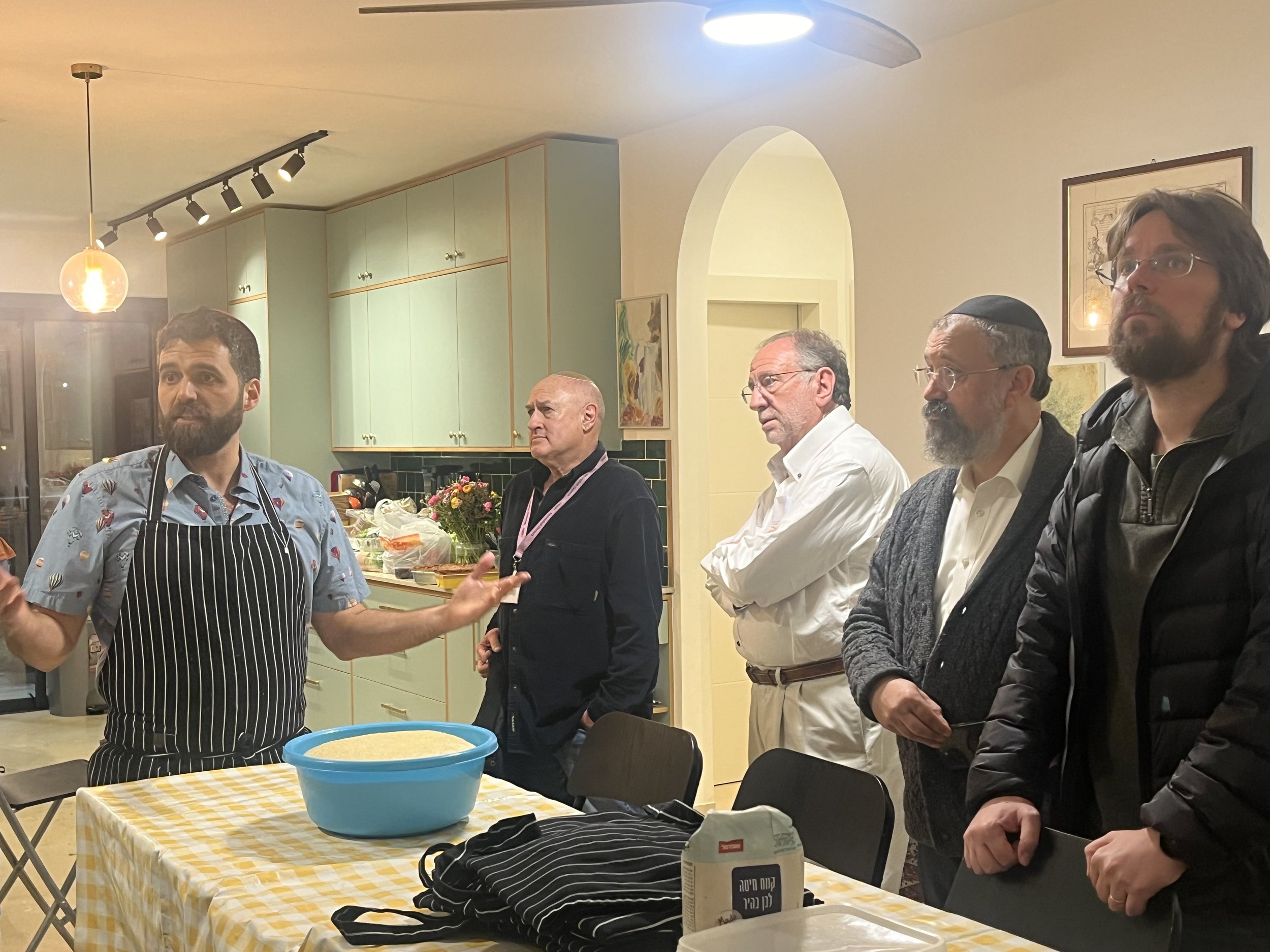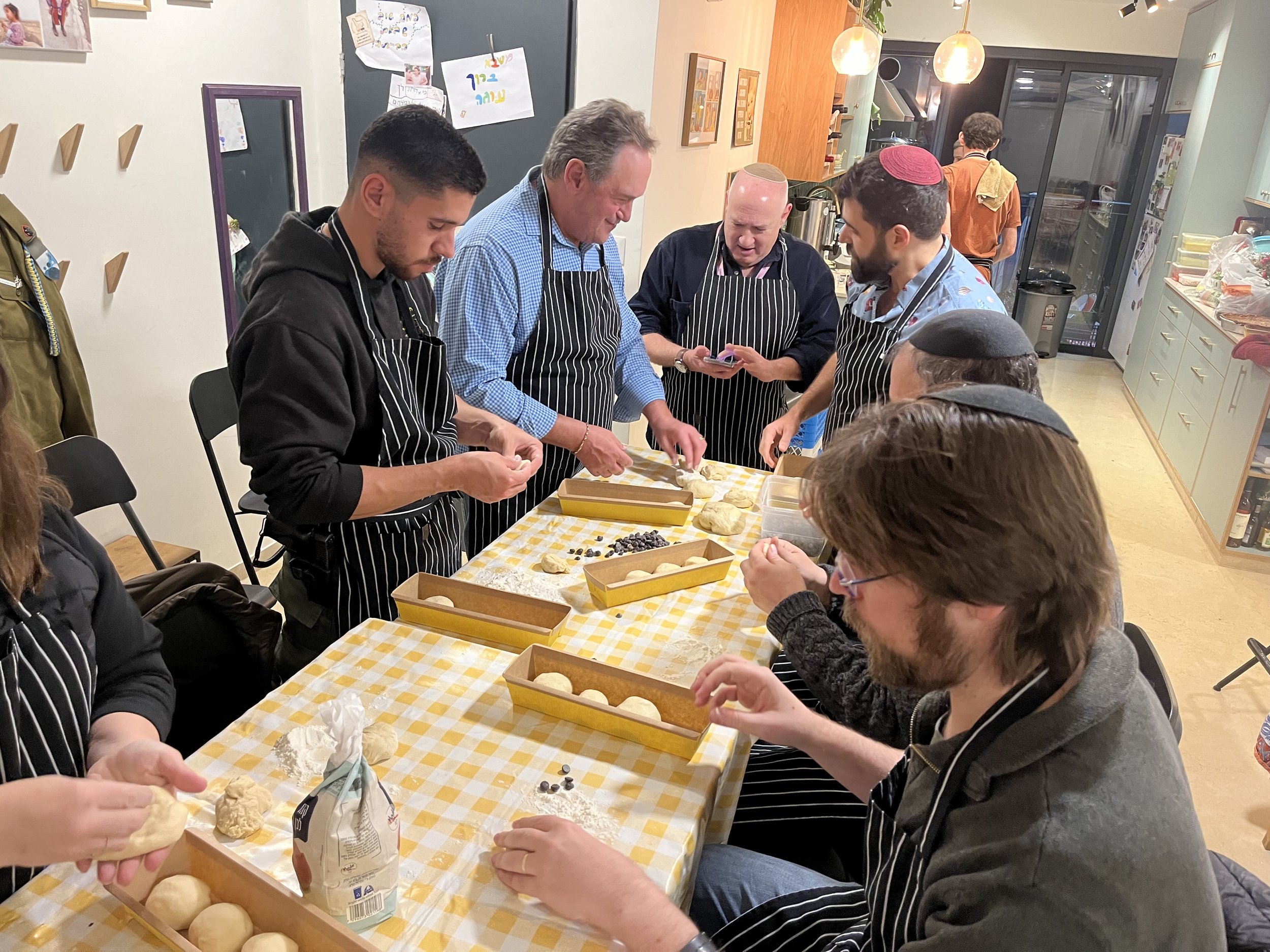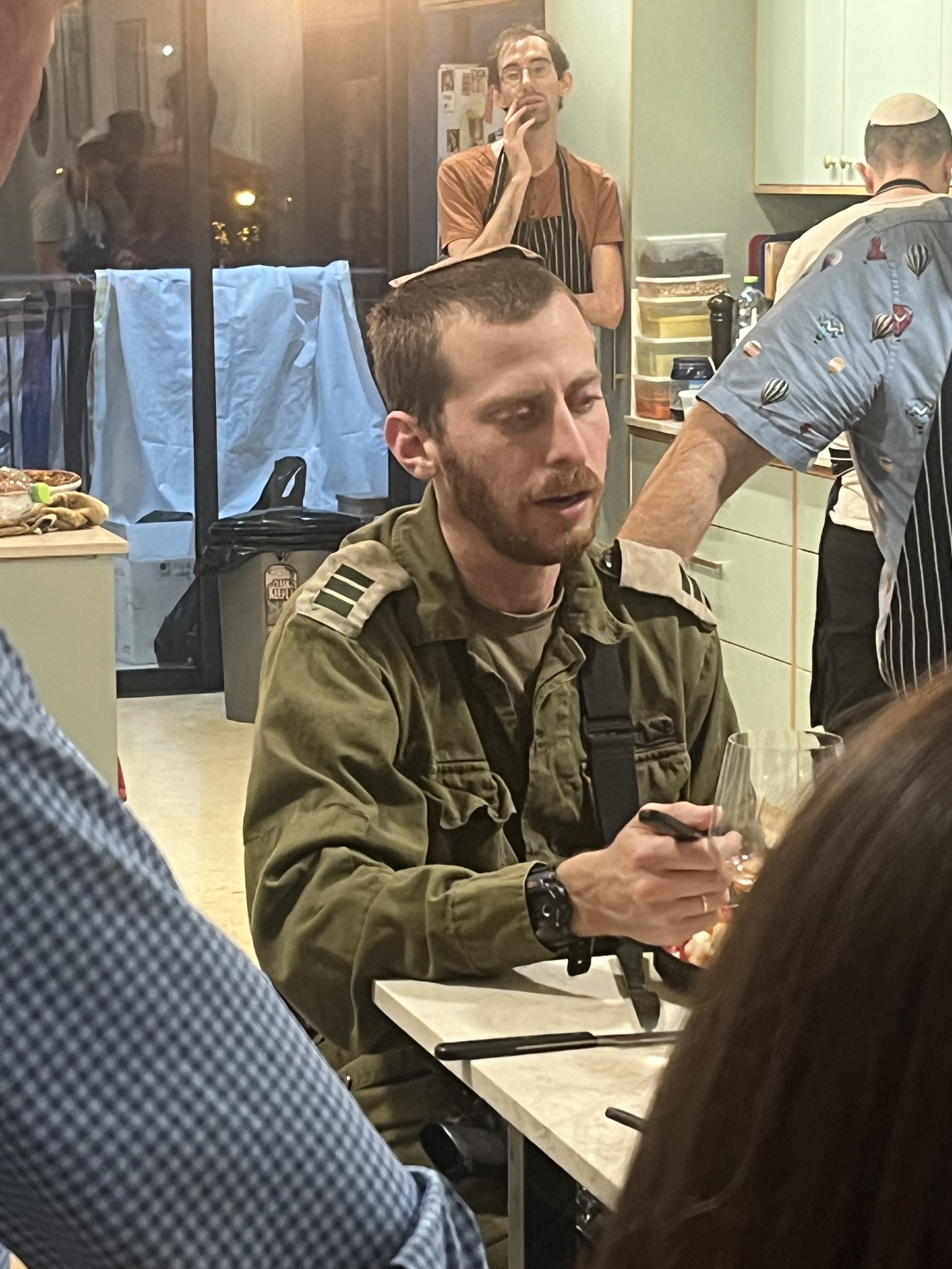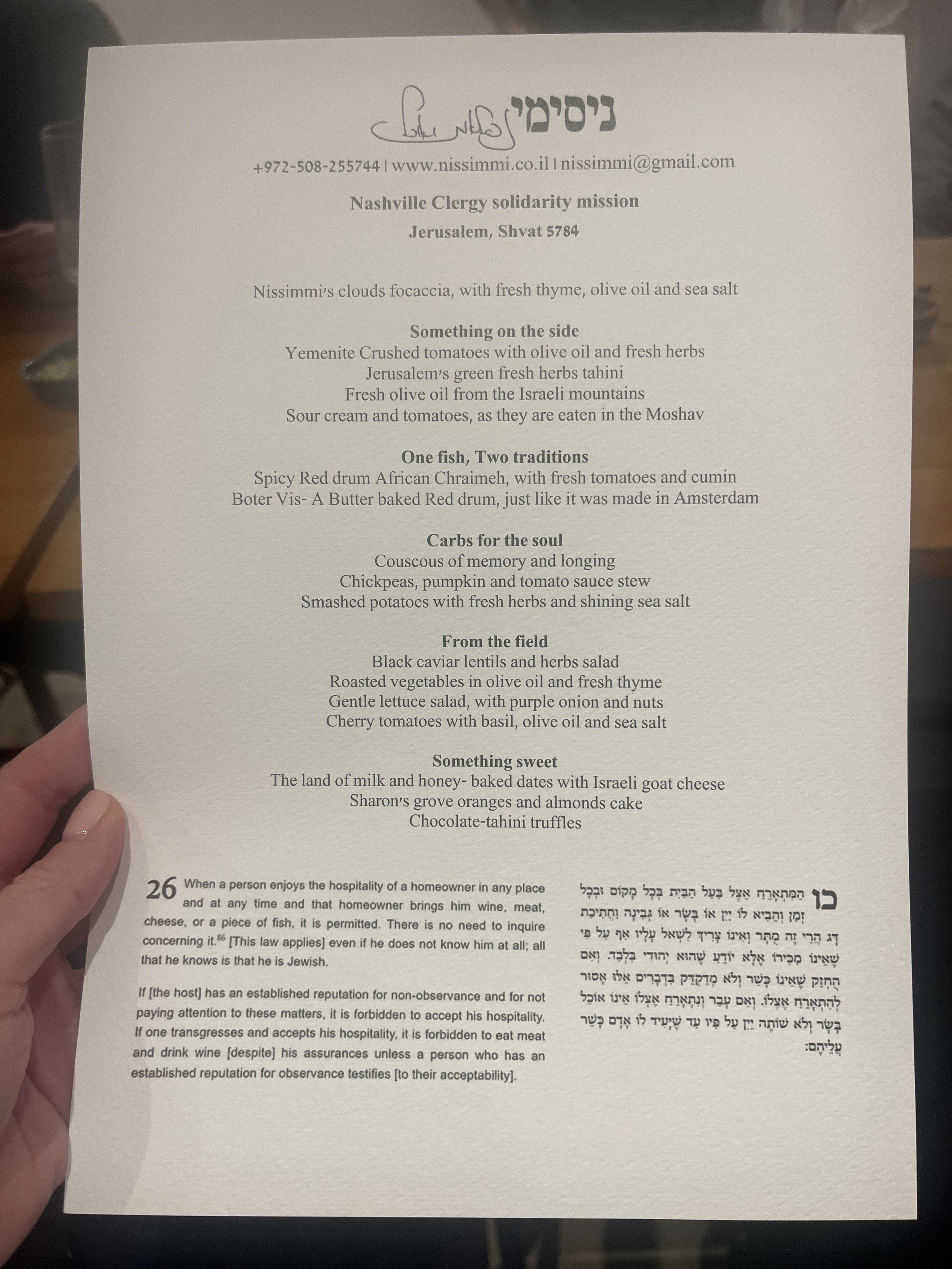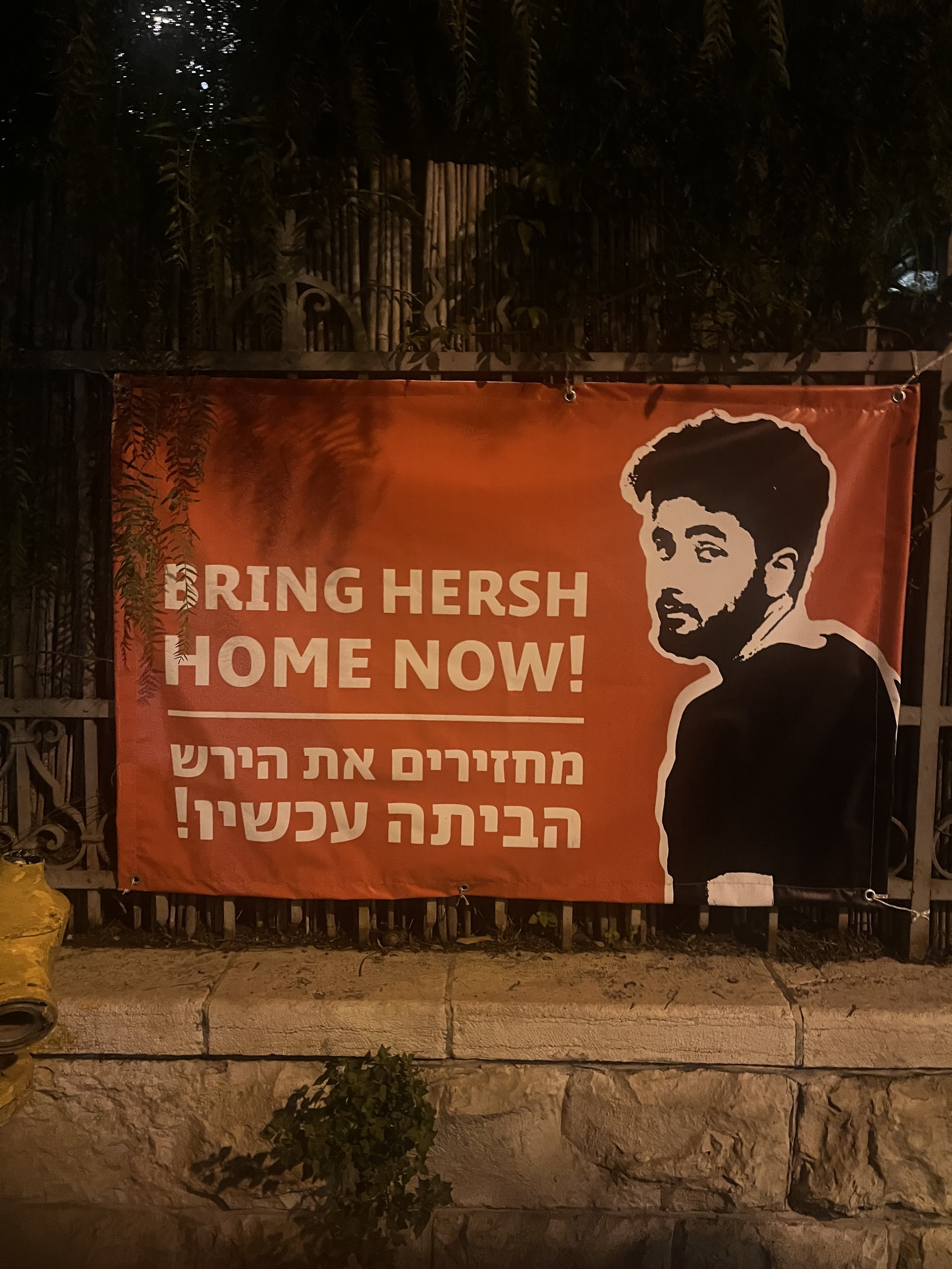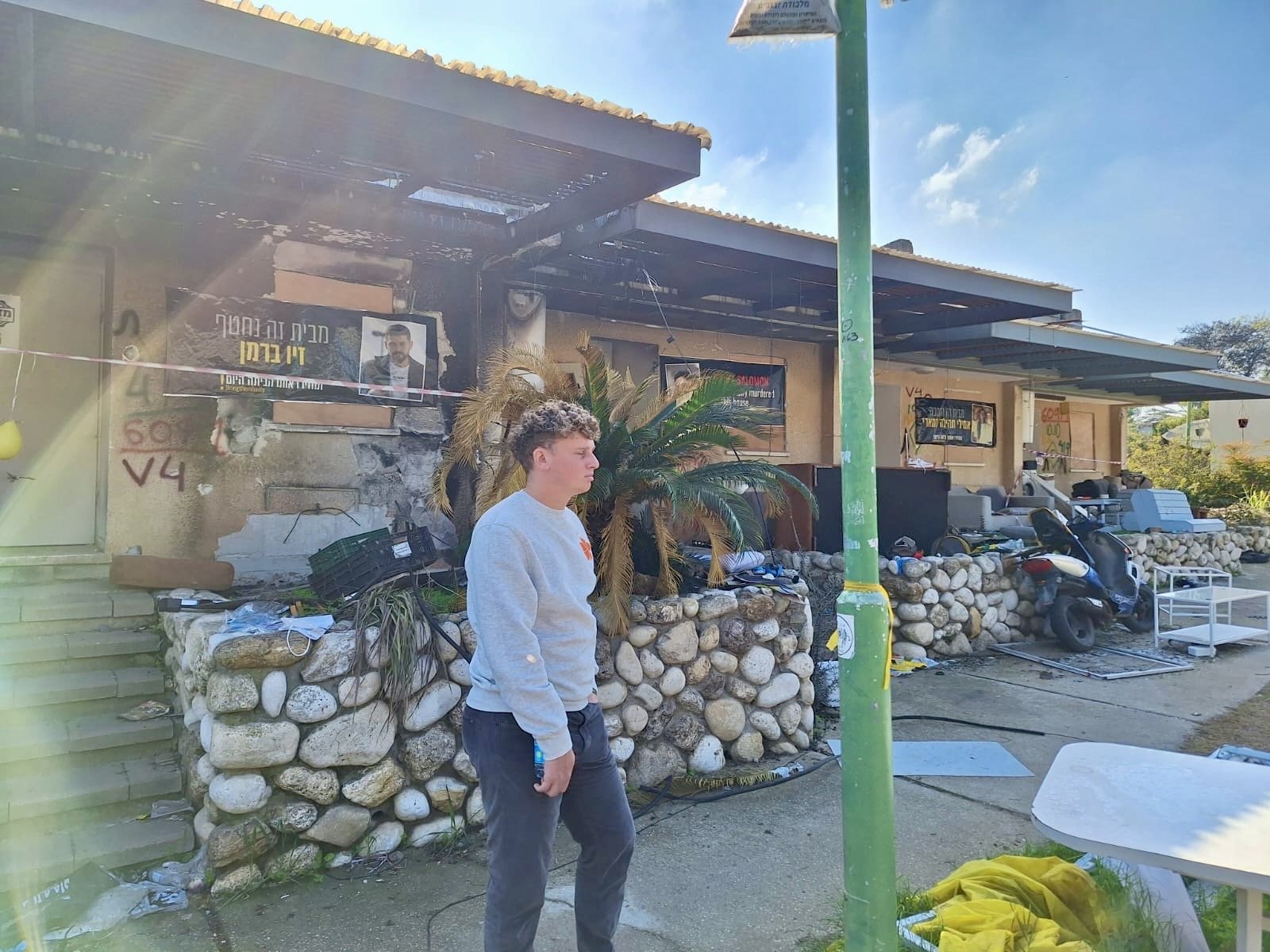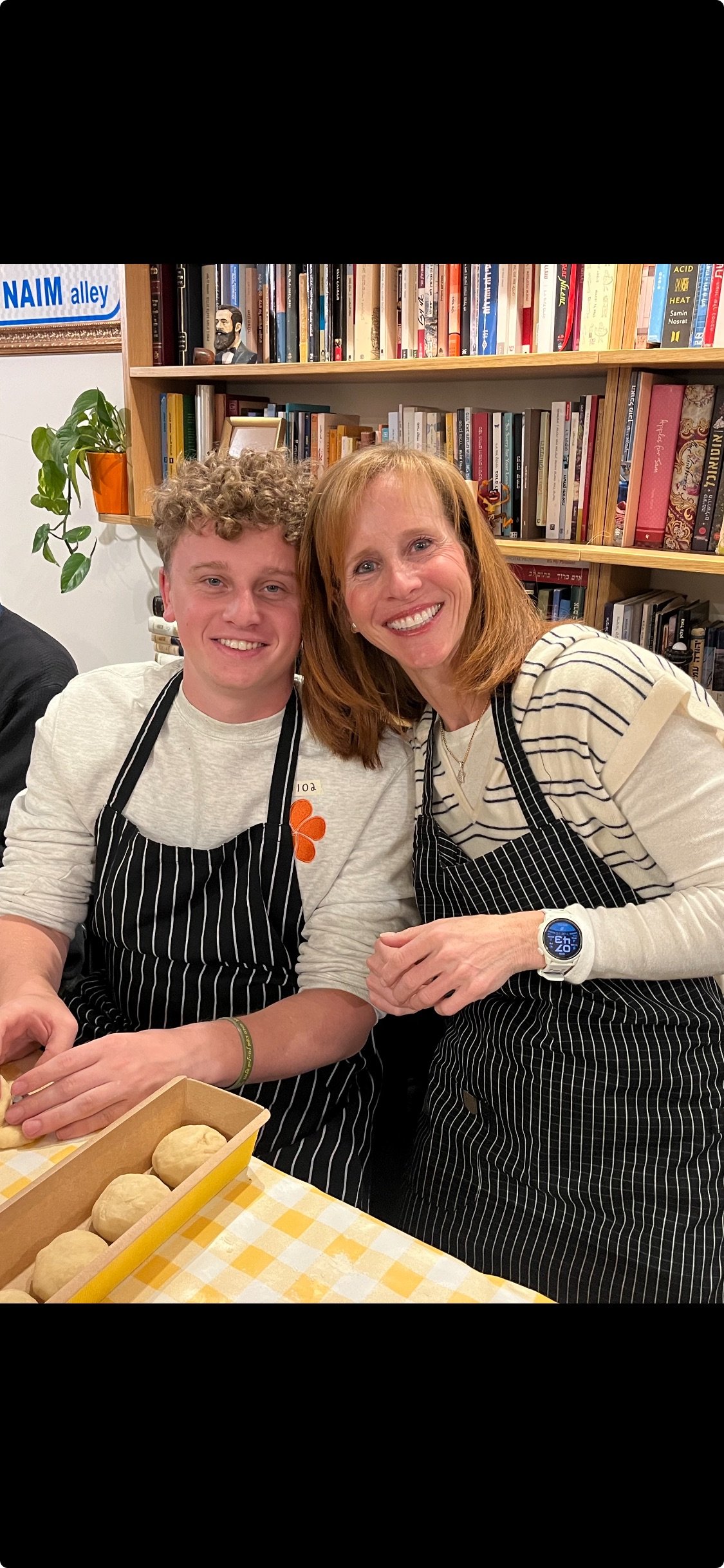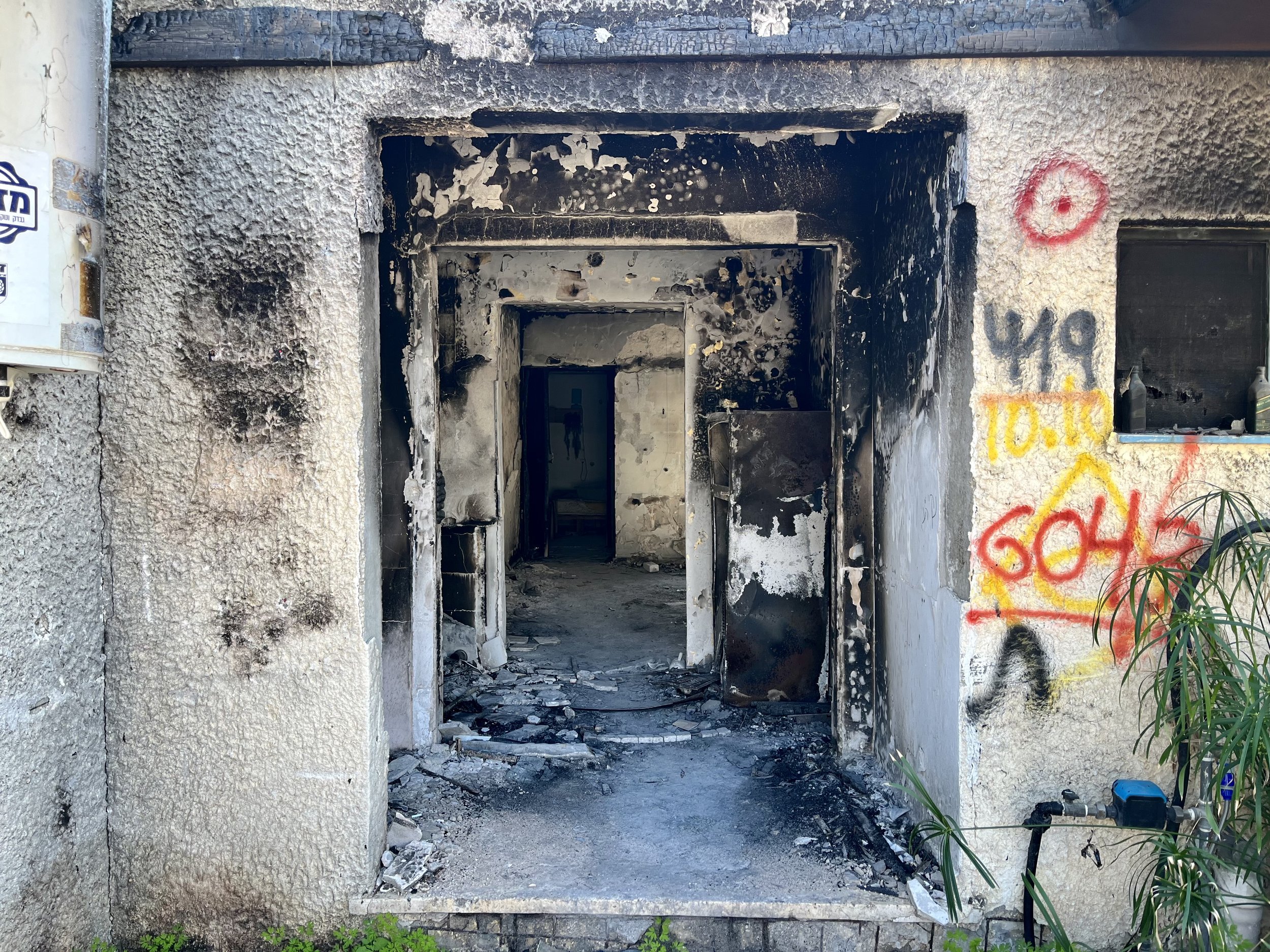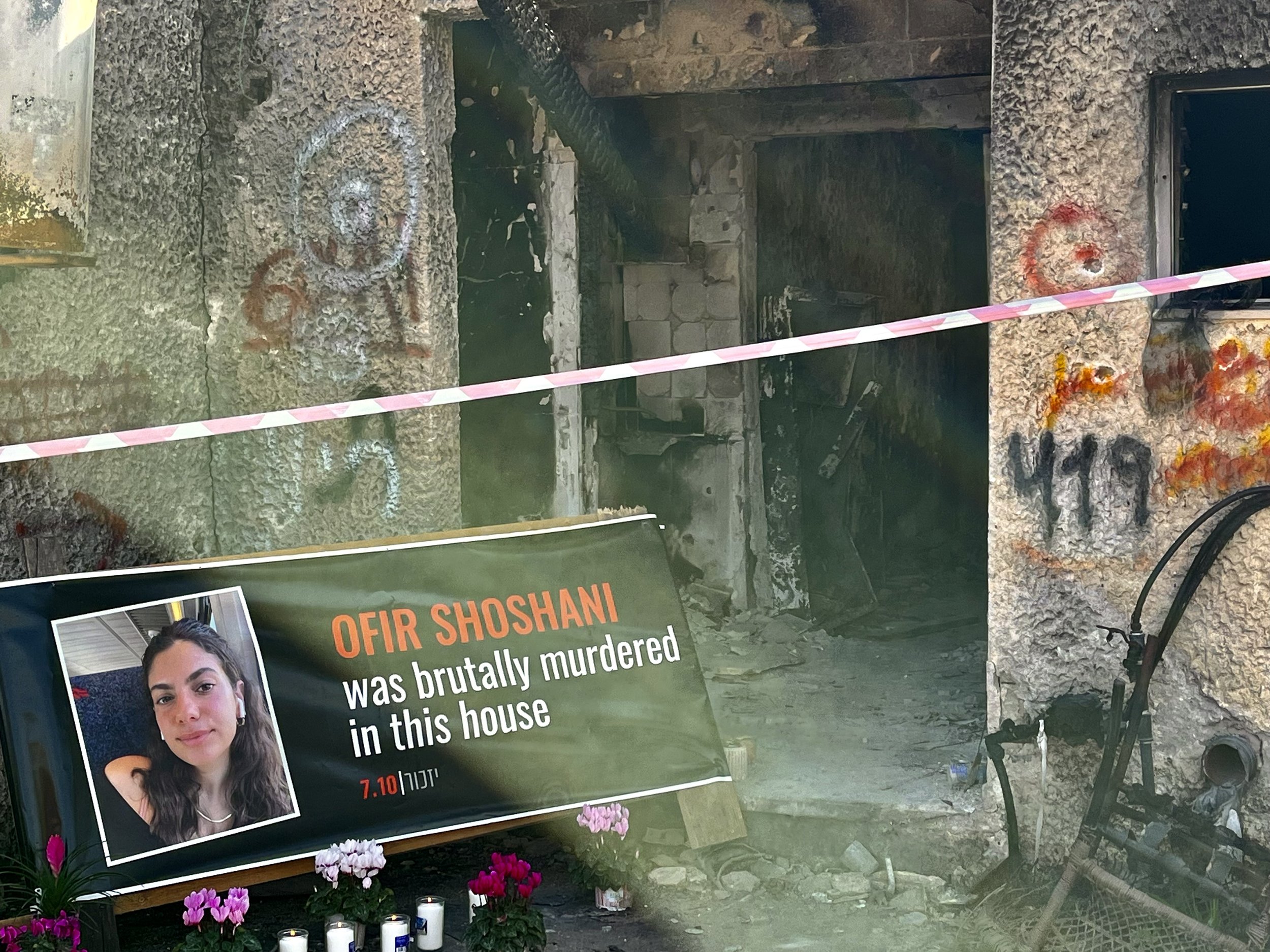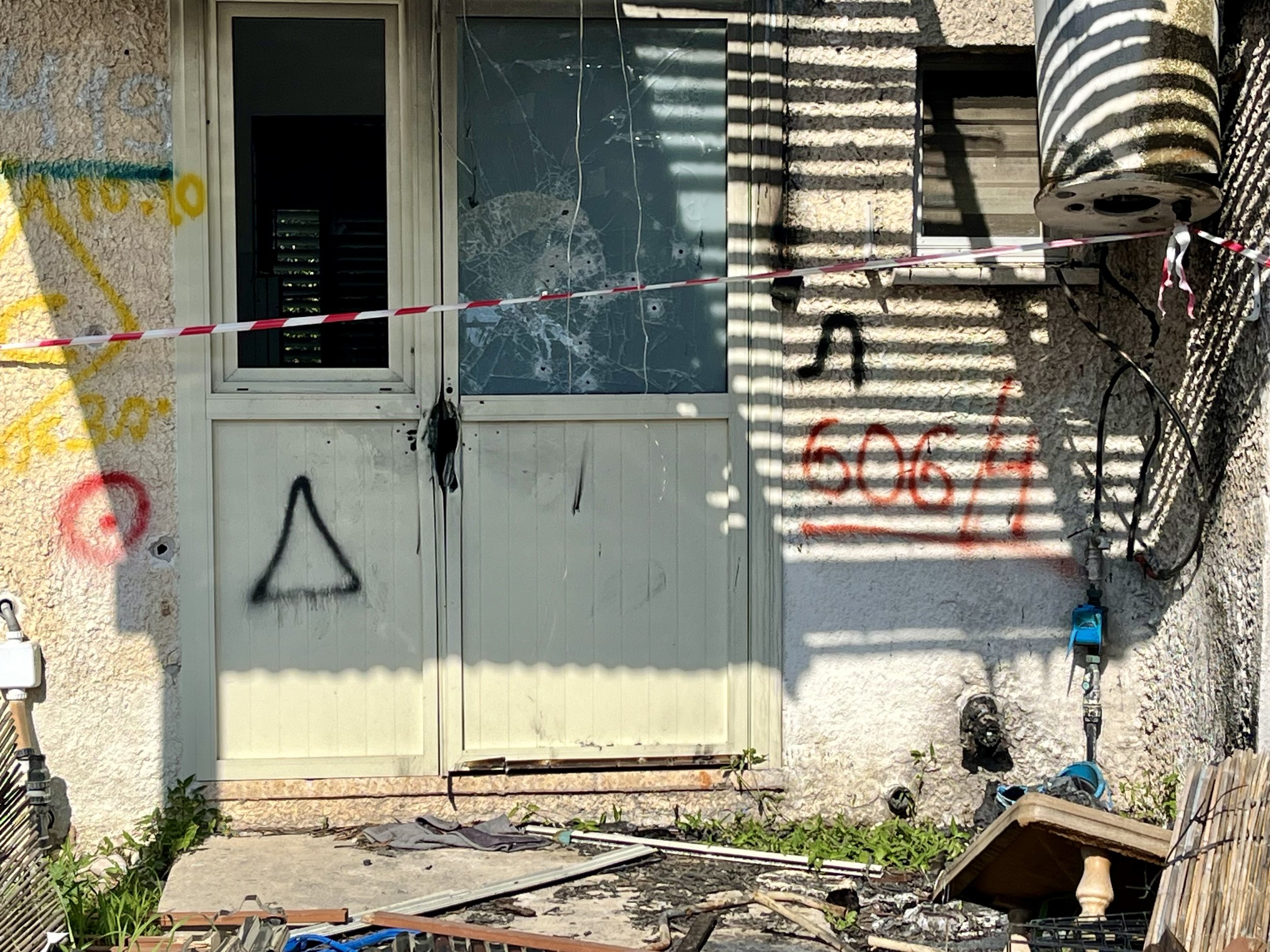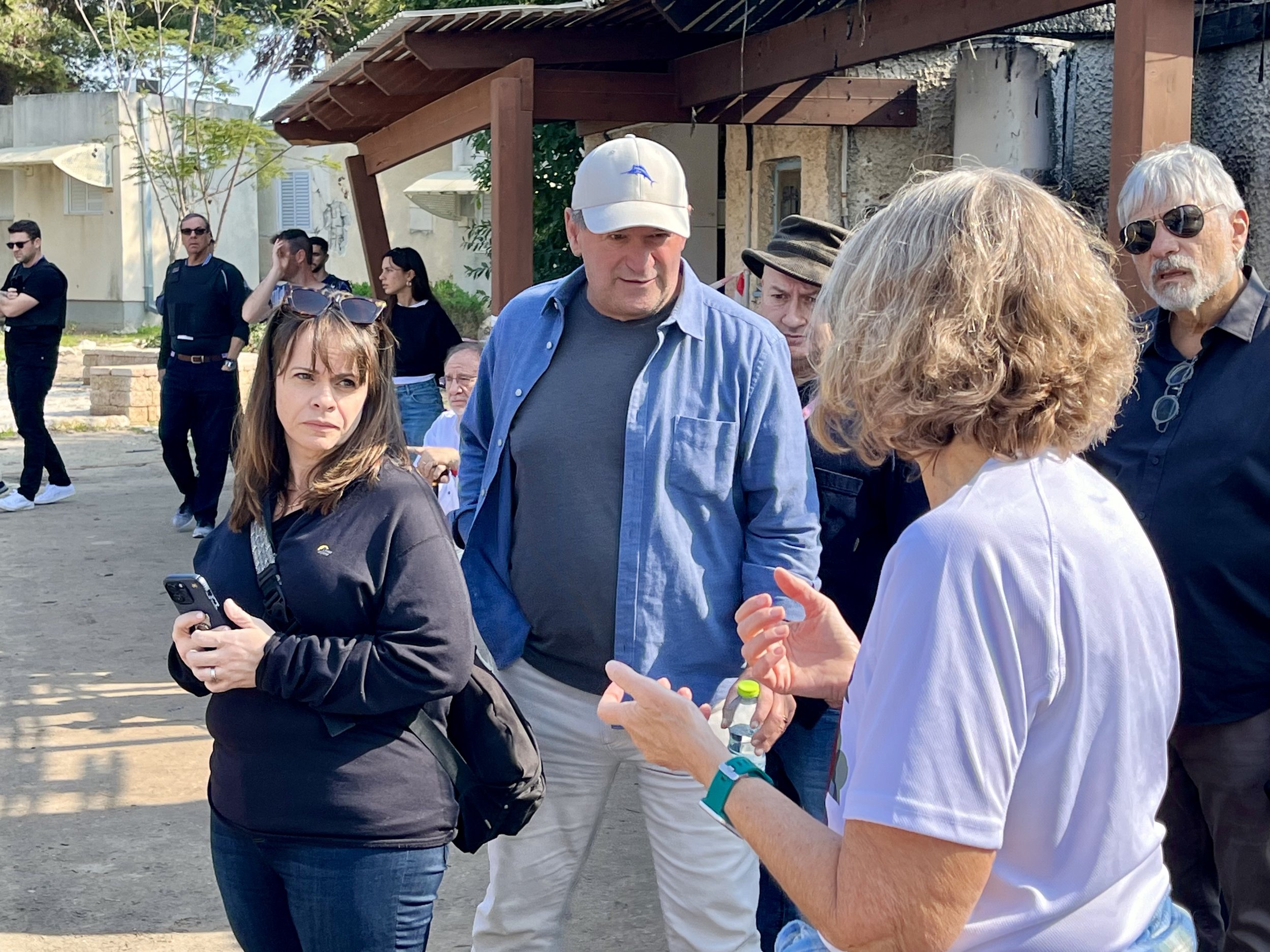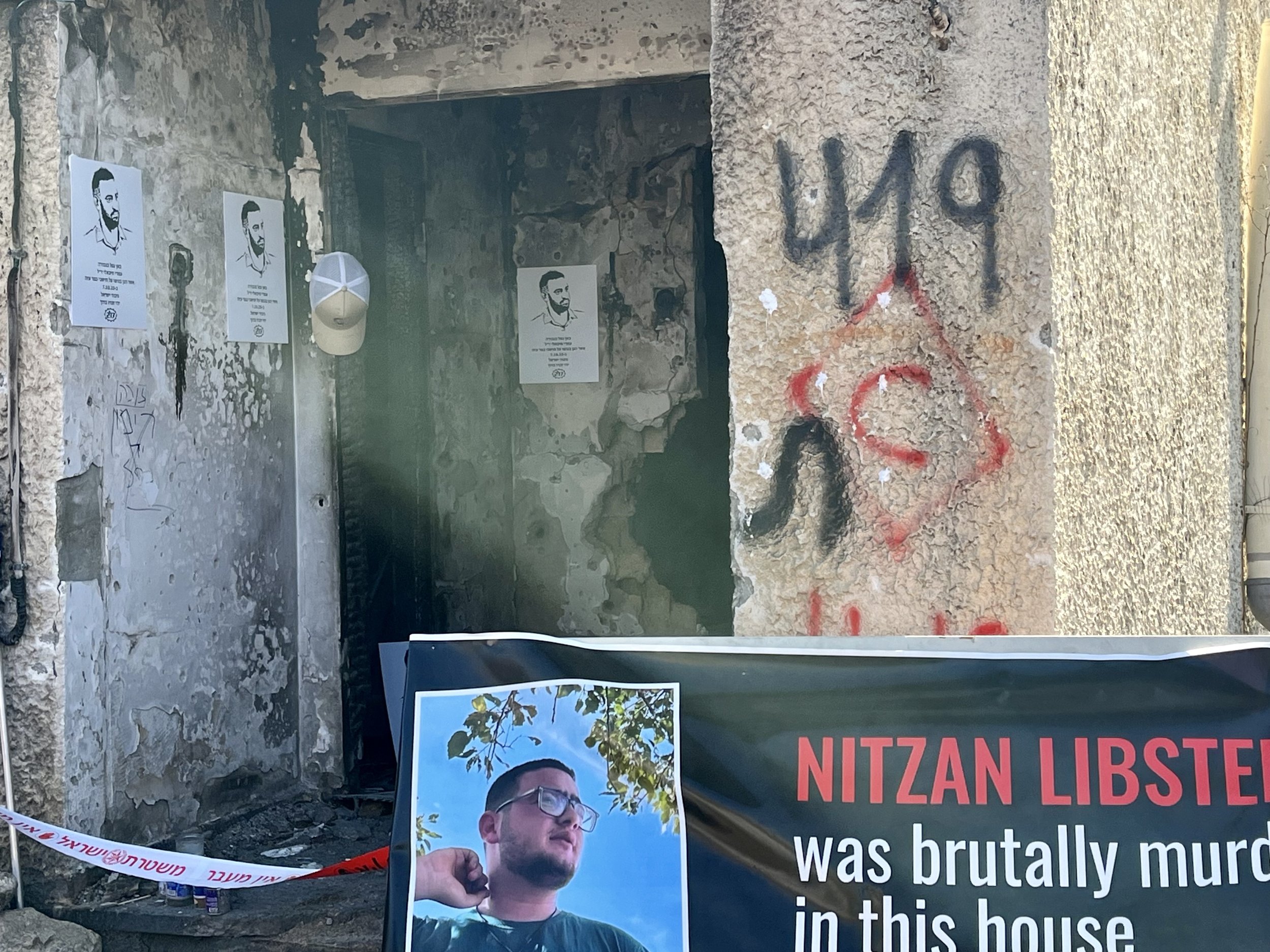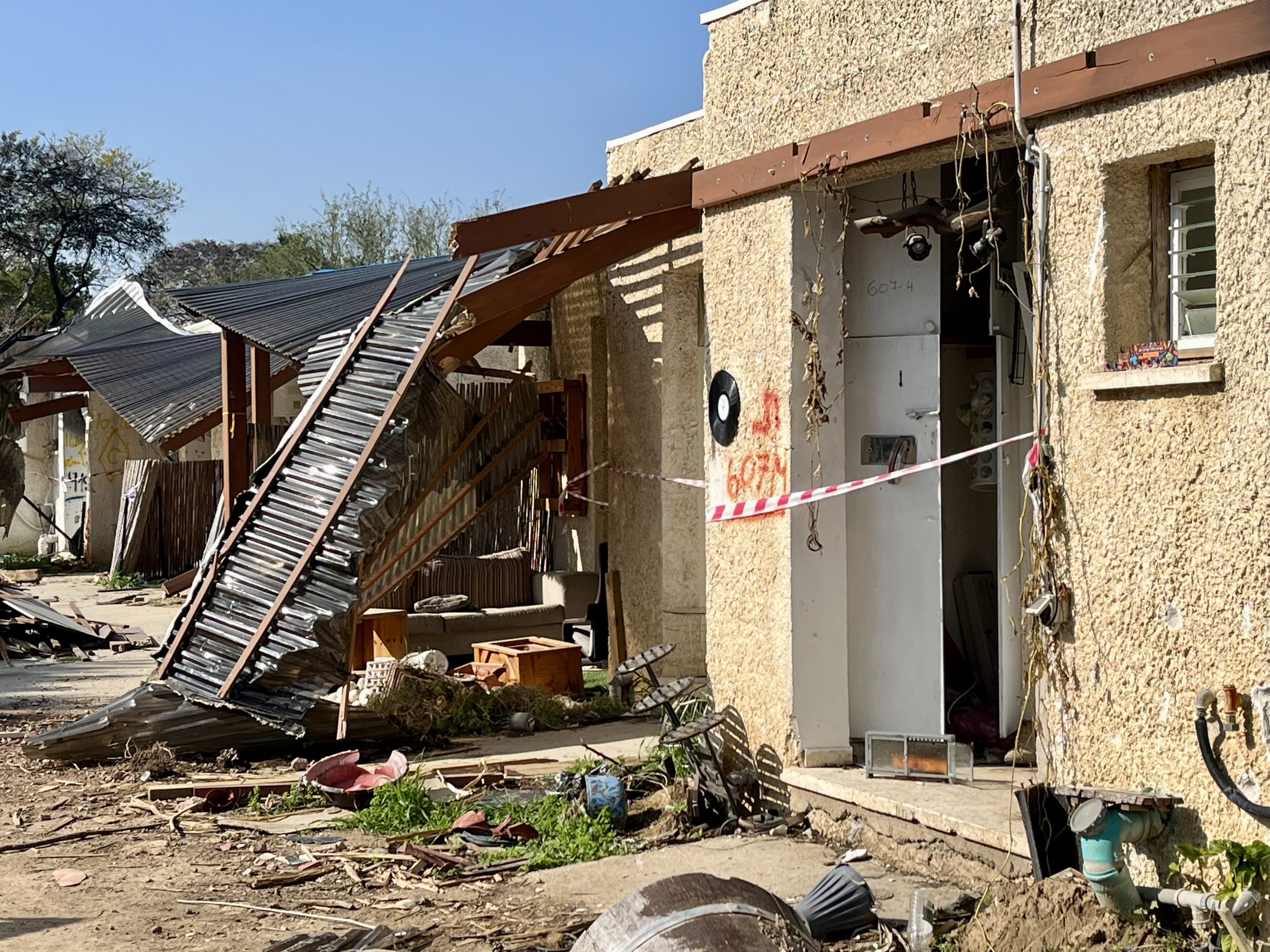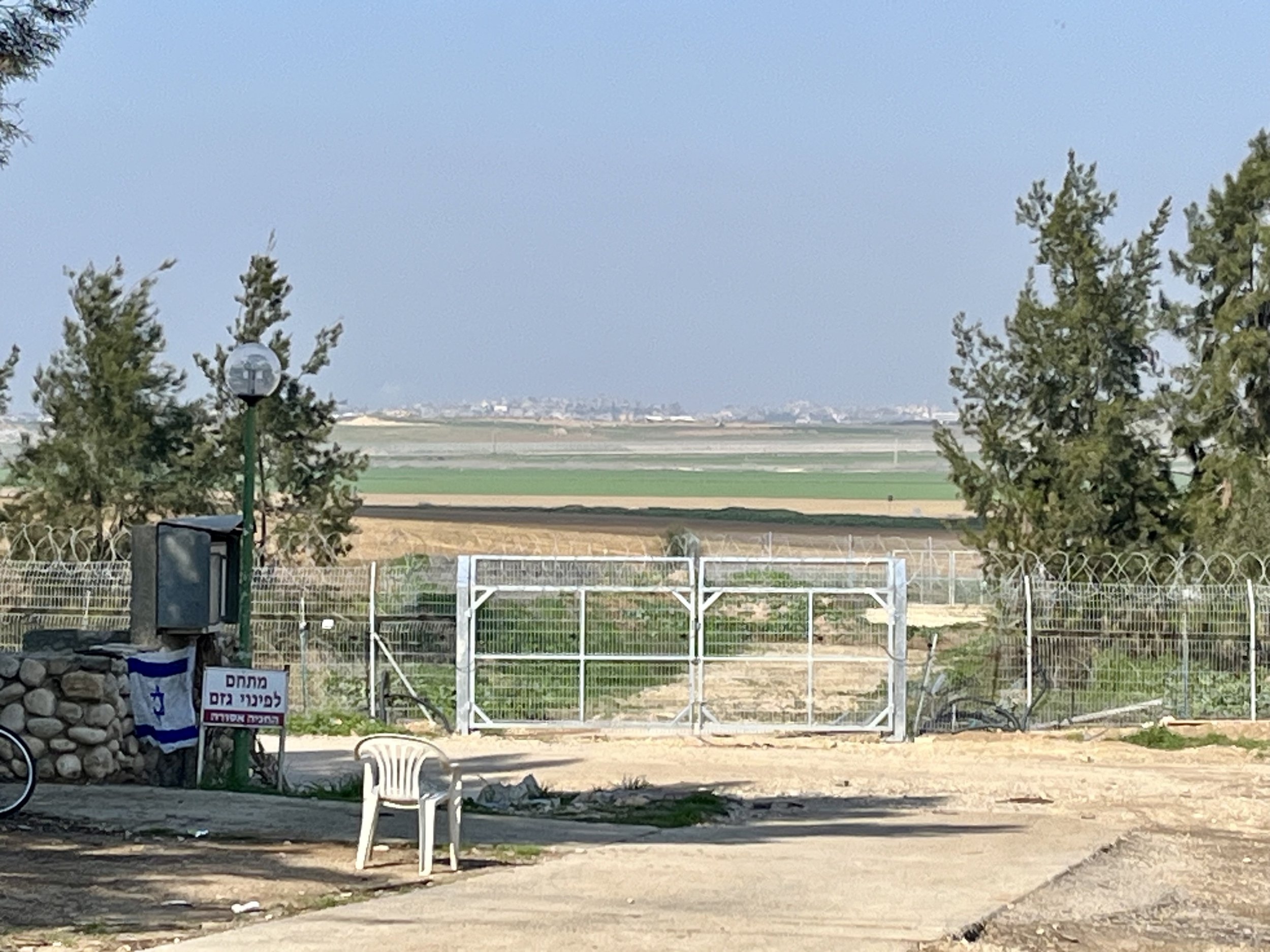Day 2: January 16th
ENTRY 1
We began our morning after some hours of sleep with the recent former editor-in-chief of the Jerusalem Post, Avi Mayer. Avi was born in New York and came to Israel at the age of 6, moved back to Maryland at 16, and then came back after college to the IDF, worked for the Jewish Agency, and then the Jerusalem Post.
On October 7, Avi woke up to air raid sirens which is highly unusual. He turned on his phone which he wouldn’t usually do on Shabbat, and saw the news about the rocket barrage in the south. He decided to go to shul and anticipated that services would be full because it was Simchat Torah. Very few came. They stayed home due to the sirens. It was a surreal experience. The first report of casualties came in and it said that ten people were killed. He couldn’t believe that such casualties would happen from rockets because of the Iron Dome. Something felt off. Ten became 22 and 22 became 50 and 50 became 100 and Mayer realized something different was going on. “We had no concept of what was happening that day that—it was beyond the realm of possibility that something like that could be happening.”
“We are in a state of constant and ongoing collective trauma. Hundreds of thousands of reservists on the front line, over 130 hostages still in captivity, and every single day we are learning more details of what happened on October 7, of the conditions of hostages and the horrible things they have endured. Every moment it feels like we as a society might be healing, and then the scab is scraped off again.”
Mayer talked to us about the largest internal displacement in Israel’s history from south and north. He spoke of the overall paralysis in Israeli society. The court system stopped operating for a period and has just reengaged, the Prime Minister’s legal situation is becoming part of the national conversation again. Politics are jumpstarted again in the national conversation, specifically Netanyahu’s political future.
This period is affecting all Israelis: First and foremost, the family members of those killed and taken hostage. Secondly, the economy has taken a significant hit and essentially has been frozen since Oct. 7. Many start-up companies have collapsed because employees have been on the front lines for months. As American Jews, we don’t always understand the unique ways this affects so many people within Israeli society. We have the luxury of changing the news channel and turning it off, but Israelis, for example, don’t have that option.
A week after the massacre, Mayer went to the Gaza envelope and toured Kibbutz Be’eri which was brutally attacked. Mayer: “What I will remember the most that day was the smell of death, even a week later. And we are aware that there is a second front of this war taking place in communities around the world. A significant rise in antisemitism. Most comforting during this time are the expressions of love and support from Jews and non- Jews around the world. And there is no greater expression of support than coming here and being here during this time. Thank you”
We asked Mayer, “How does this end?” It remains to be seen. “We entered without a clear endgame which is a challenge we are dealing with now. There are three goals in mind according to government leaders. One: bring the hostages home. That’s the immediate goal. Second is securing life for those who live on the borders so they can return home safely. Third is the eradication of Hamas. This third goal is interpreted in various ways. One: Eradication of all members of Hamas (at least 30000 military operatives alone.) Second: eradicate their military capability so Oct. 7 never happens again. Third: eradicate their ideolog—a seemingly impossible task.
Mayer noted that to date, 8-9000 Hamas combatants have been killed with 23000 citizen fatalities. While that number of civilian causalities sounds awful, “the ratio is quite strong as far as war goes” (see https://jewishjournal.com/commentary/opinion/366983/indiscriminate-bombing-what-is-israel-doing-in-gaza)
What will give people the confidence to come back home? UN resolution 1701 is supposed to dictate that the southern part of Lebanon will be demilitarized. Israel intends to require that that resolution be upheld so the North can be safe.
We asked Mayer: What about the humanitarian crisis in Gaza? What are Israelis saying or doing about that as a priority? Mayer shared: There aren’t that many images of human suffering in Gaza in Israel like there are in other countries. Yes, the papers do cover it. But for Israelis, Oct. 7 was a watershed moment and their priority is on their own soldiers and hostages. Their focus is insular. There is an awareness of the humanitarian crisis in the Israeli consciousness, but there is a general sense that Israel must do what it needs to do to eradicate Hamas within the bounds of morality and international law.
Some have asked us as Micah’s rabbis: Is the cost of maintaining a Jewish state worth it? (see: https://www.nytimes.com/2024/01/14/us/israel-jewish-america-diasporism.html?smid=nytcore-ios-share&referringSource=articleShare) According to Mayer, that’s not even a question. “Was the West worth maintaining during Dresden and Hiroshima? Is American democracy worth the causalities in Iraq and Afghanistan? War is horrific. No doubt about it. There is a humanitarian crisis in Gaza, no doubt. And while that must be addressed, should Israel be called into question as having a right to exist because they were attacked and are defending themselves? Israel was called into question before the response began. Before October 8th dawned, there were celebrations throughout the world. It was a celebration of genocide. Remember: There was a ceasefire in effect on Oct. 6 and it was broken.”
Post Script: We discussed the fact that there is no right to bear arms in Israel. Israelis have always been baffled by American gun culture. But that is changing. More Israeli citizens are considering owning and carrying a gun. This is a conversation Israelis are starting to have. Israel’s very defense and security doctrine is going to have to be totally revamped. Military service will likely be extended. More soldiers on the borders.
What will it take to get the hostages home? One camp within Israeli society says we have done as much as we are going to do militarily for the most part, that the bulk of the fighting is done, and it’s time to wrap it up and get the still-alive hostages back. A second camp says it’s the military pressure itself that pressured Hamas to give up the hostages they already have and Israel has to keep up the military pressure and to back off will be seen as a sign of weakness and we won’t get the hostages back if we do that. Ganz has sided with the first camp. Netanyahu is with the second camp: military pressure is the only language Hamas understands. This is a living, breathing conversation in Israel at this time.
ENTRY 2
We are traveling south towards Gaza to visit some of the communities hardest hit on October 7. We are on road 232 where many of the terrorist attacks and ambushes took place on Oct 7. We arrive at Kfar Azza, a kibbutz just one mile from Gaza. Here, 60 residents were murdered and 17 kidnapped. (https://www.timesofisrael.com/corpses-and-kids-bikes-burned-homes-and-death-in-kibbutz-where-hamas-butchered-100/amp/ (https://www.timesofisrael.com/corpses-and-kids-bikes-burned-homes-and-death-in-kibbutz-where-hamas-butchered-100/amp/)
We arrived around 11 am to meet Rachel, a resident and our guide for the visit. The first thing Rachel tells us as we get off the bus is “Tzeva adom. A red alert. It means there is a rocket attack, and everyone needs to take cover. If you hear it, please get on the ground and cover your head with your hands.”
Ok.
We can hear the fighting in Gaza. The booms. They come frequently.
Rachel tells us that living on Kibbutz Kfar Azza is 95 percent of heaven and 5 percent of hell. Sometimes they have just 15 seconds to get to a shelter. Normally, they go to a shelter for 3 minutes and the rocket is done and they come out. Not on October 7. On that morning, the attack didn’t stop. Rachel is also head of the Emergency Task Force for the kibbutz. On that morning, she sent an SMS to the whole kibbutz that there were terrorists in the kibbutz. That morning and throughout the day, she received text after text of murders or wounded or terrorists in the house, nonstop until she, herself, was rescued the next morning at 4 am.
The kibbutz is beautiful. Tranquil. It feels like sacred ground. The dissonance is heavy as we walk through. No one lives here now. Half of her rescue team was murdered. There was no help to be found. And as we walk, we hear the sound of booms constant from Gaza which is clearly in the distance, about a mile away from where we stand.
The army arrived at noon on Saturday the 7th, but the fighting went on through Tuesday afternoon, October 10th. The army does not allow kibbutz residents to keep guns in their homes because they could be stolen. They are required to be kept in the kibbutz armory. Some kibbutzim disregard this rule, but not Kfar Azza. And it was a big mistake. Those nearby kibbutzim also attacked that disregarded this rule fared much better.
We walked by house after house of murdered or kidnapped residents, some burned alive, others shot. Netta Epstein was living with his girlfriend and the terrorists threw a grenade into their house. He jumped on it to save his girlfriend. He died instantly and she survived and hid under the bed next to his dead body so if the terrorists came by, they would think they had already killed the residents and move on. She survived.
We asked Rachel: Will they rebuild? She said she doesn’t know. “On the one hand, it should stay as is. A memorial. On the other, we have to rebuild.” How can she talk about it? “It’s a mission for me.”
The devastation and carnage is everywhere on the kibbutz. We talk about how safe rooms in homes, and they are in all the homes, have no locks on the doors. Why? Because safe rooms are only to escape rockets. There was never any consideration or even thought of the possibility that there could be a terrorist attack that would require residents to lock themselves away. Such was the trust and certain faith in the Israeli government and IDF to protect its citizens on the border. Why else would people choose to live within walking distance from Gaza? Because it was never a consideration. Never.
Rachel seemed positive toward the younger soldiers in the army but not so taken with the “higher-ups” in the army. Asked if she thought things would change now, after October 7th, she paused, a slight shake of her head, and said, “We have a short memory.”
ENTRY 3
After a ridiculously indulgent homemade Moroccan Israeli meal at the home of a resident in the nearby town of Netivot, we came to a municipal building to help pack food boxes for soldiers. We also see a graveyard of cars collected from the Nova festival and those used to attempt escape on the morning of October 7th.
From there we continued on to Sderot, a symbol of Israel’s longstanding conflict with Hamas, to visit with Sderot council member and former vice mayor Herzl Shaubi. And a visit to the Chabad center of Sderot where they have a Hannukah/menorah out front made of rockets shot over from Gaza. The significance is that we as Jews make light from all that which is dark— that is our mission.
ENTRY 4
After a very full day, we left the hotel at 7:15 and traveled to the Jerusalem neighborhood of Katamon, the home of professional chef and Shalom Hartman rabbinical student Nissimmi Naim-Naor. The experience was nothing short of magical, both in culinary and spiritual terms.
After greeting us with Rose wine and homemade focaccia with fresh thyme, olive oil, and sea salt, Nissimmi asked each of us to introduce ourselves and answer the following question: what is your favorite carbohydrate? Seemingly innocuous, but it evoked a passionate set of responses from our group.
Nissimmi proceeded to serve us a number of spreads for our focaccia, including Yemenite crushed tomatoes with olive oil and fresh herbs, Jerusalem's green fresh herbs tahini, Fresh olive oil from the Israeli mountains, and Sour cream and tomatoes. And then, he told us his story of October 7:
I heard the alarm. I was getting dressed to go to Simchat Torah services and I continued tying my laces. It was the last moment of normality in the last 102 days. I wanted so badly to think it was okay. Then another alarm. I opened my cell phone which I wouldn't normally do because it was Shabbat. Terrorists in Sderot. Can't be. I am sure it will be fine. Another alarm. No--we will stay. It’s Simcha’s Torah and we will be happy. Another alarm. We all knew something was happening. But we thought the IDF would take care of it. I texted my commander saying I was here and available. But we continued our prayer. And hakafah (circling with the Torah). More and more alarms and people being called to their units. We knew something big was happening but still didn’t open our cell phones because we figured it would be handled. Then we closed Shabbat with the ritual of havdallah and I opened my cell phone. I was immediately called in for an emergency.
70 funerals in one week.
35-hour shifts.
Some people in my unit collapsed because it was too much to grasp.
What was taken away was the feeling that our home was safe.
What gives me strength is to see the incredible heart of our nation who volunteered and came and helped and did everything they could and those who ran into the fire without blinking. All of our families—yours and mine--have a history of a pogrom from the Crusaders or Arabs or Christians… "Time to pack we are going!" This was the first time when Jewish people ran not FROM but TOWARD the fire. That’s incredible.
It feels like 100 years since Simchat Torah/October 7th. Everything before that moment seems so long and distant ago. Two terrible things are happening right now: 1) soldiers are fighting and dying and, 2) the hostages in Gaza.
This is like Nazi Germany. Hamas wants to do the same to us. What is the balance between fighting and releasing hostages? I don’t know. Hamas cannot exist because all they want is death. Hamas was democratically elected. No one in the Arab world or Palestinian world or from within Gaza said "This is a disgrace, this is not the Palestinian way of resistance." Not a one. Where is that poet or leader of peace? There is not enough room for the two of us. It’s us or them. Do the hostages get sacrificed? Thank god I don’t have to make that choice. I don’t know what should be done. I am praying they all come back. But if we want to live, we cannot allow this Hamas entity to exist.
A fellow soldier said before going to Gaza: “We are going to make history and making history stinks.”




